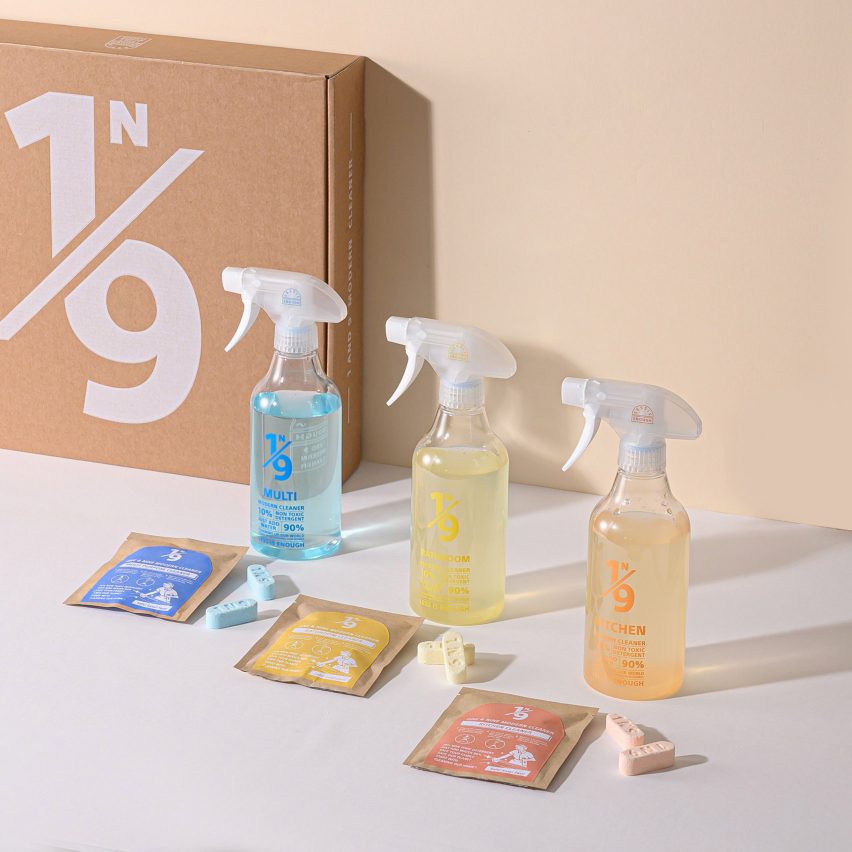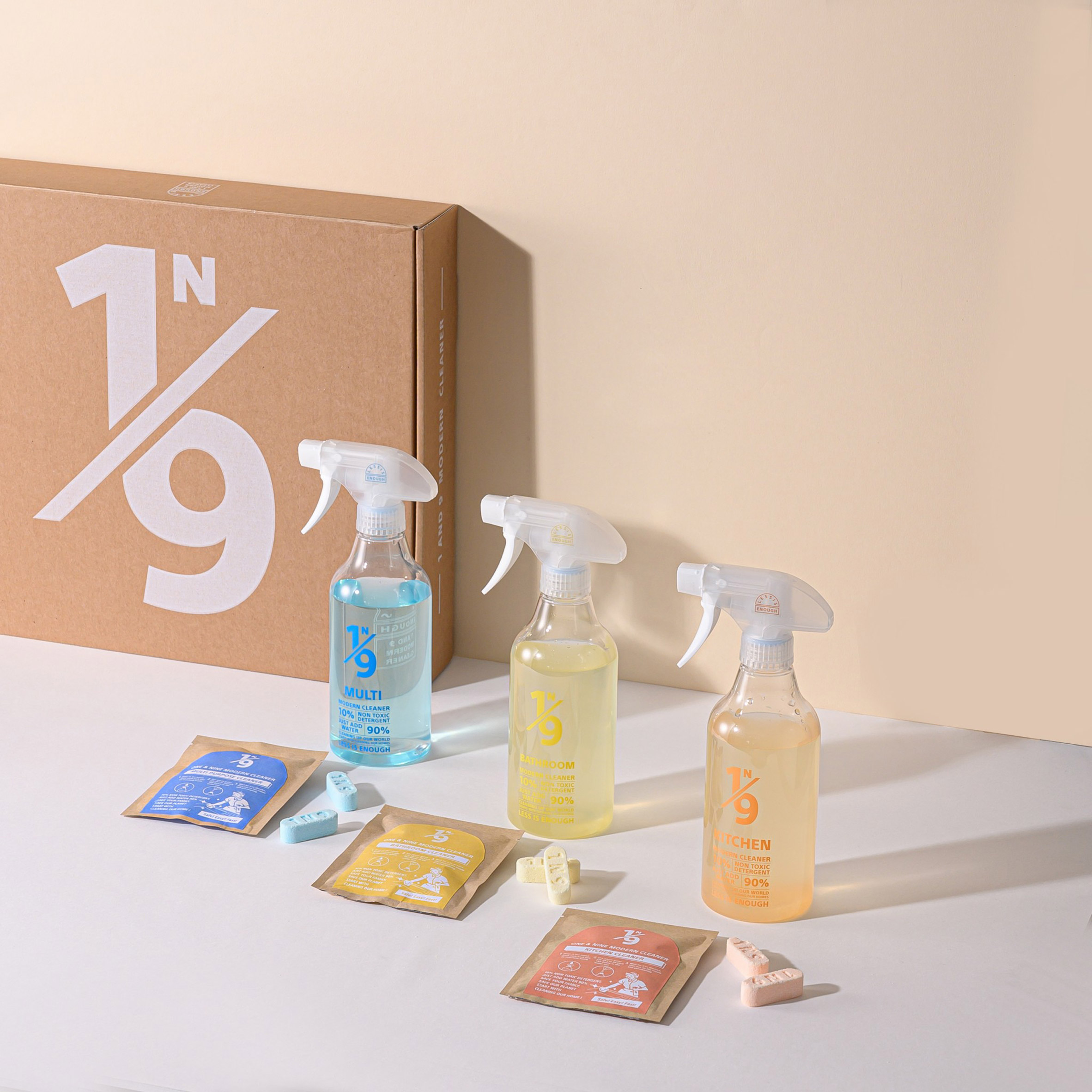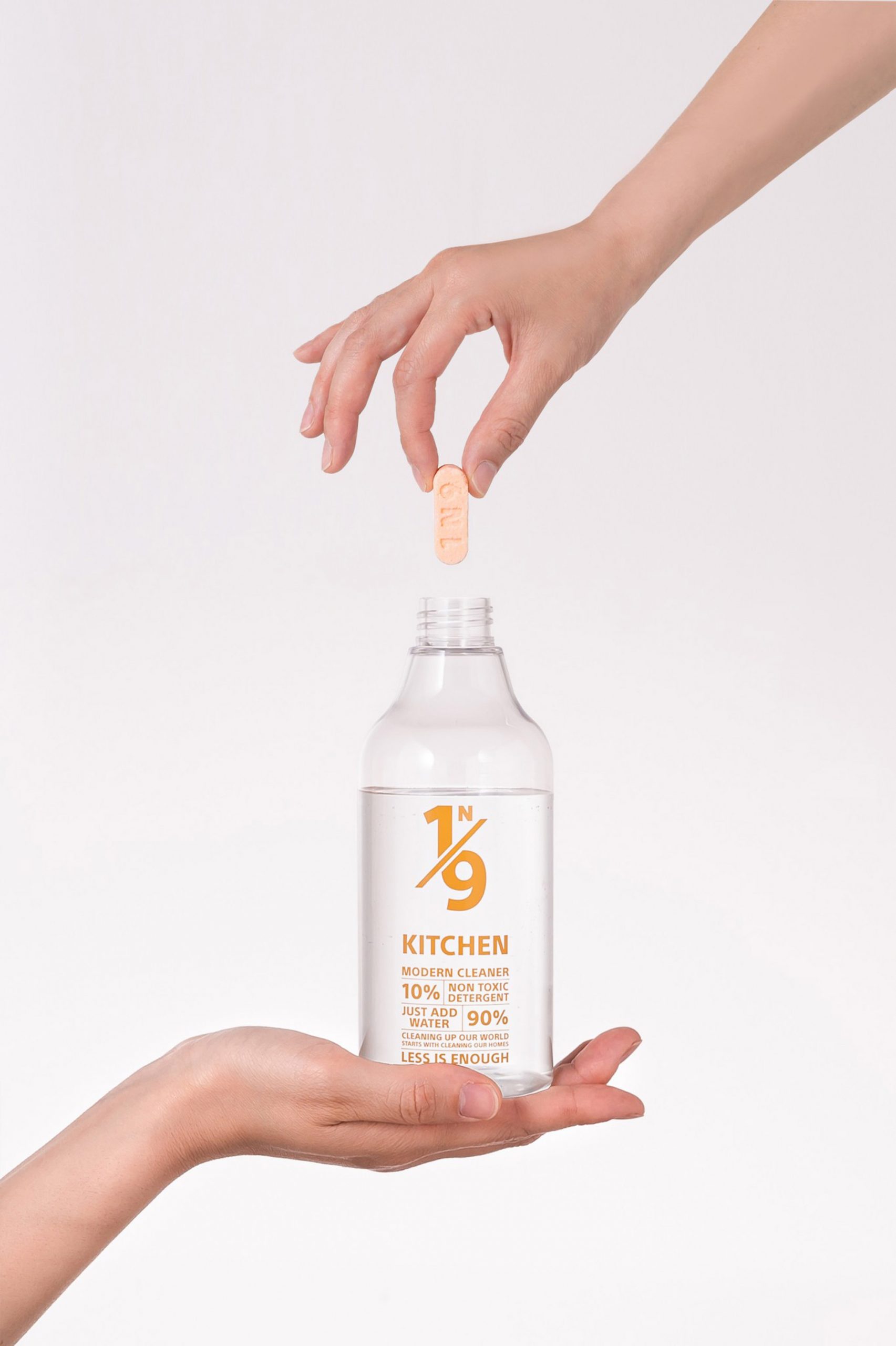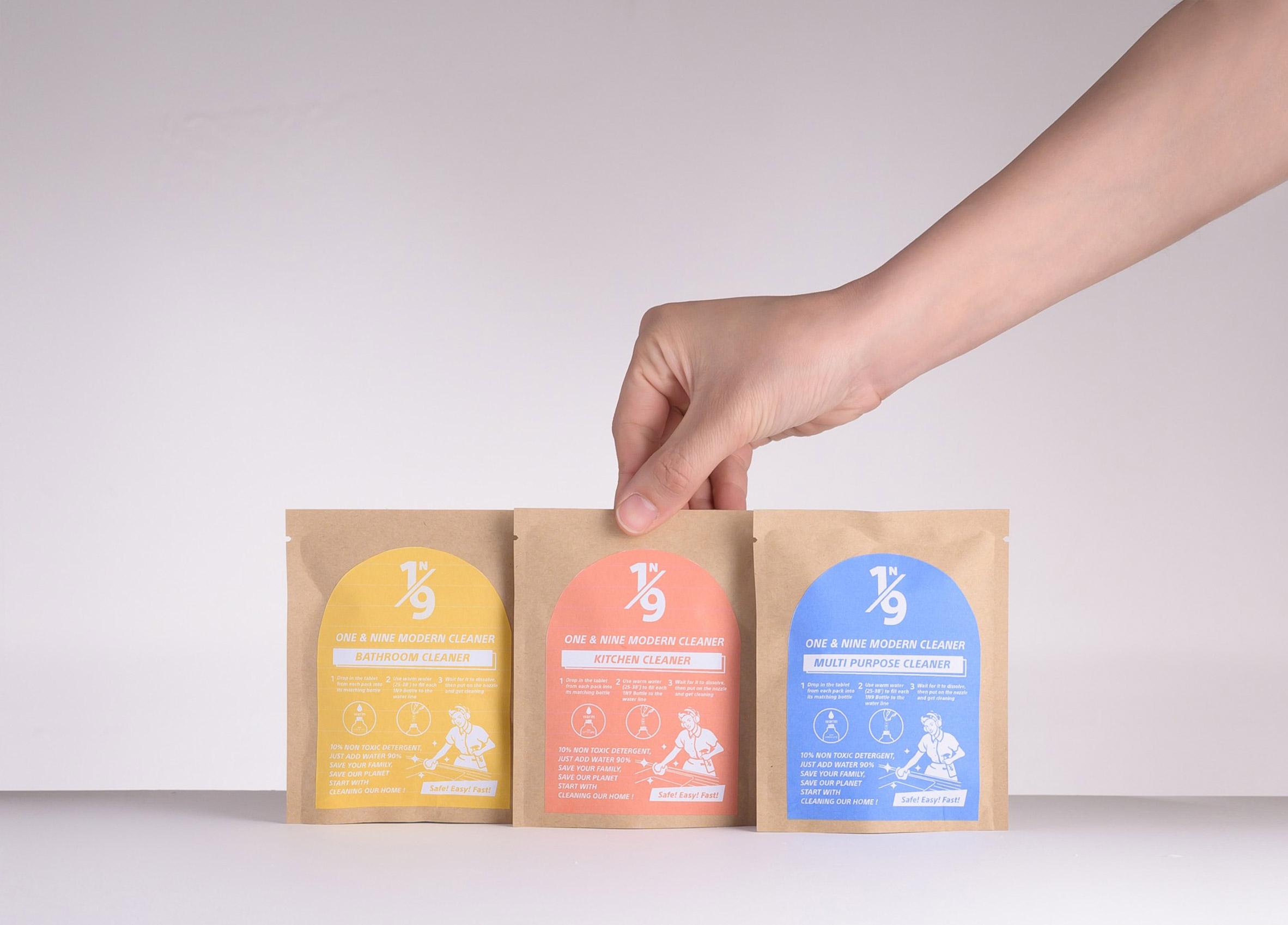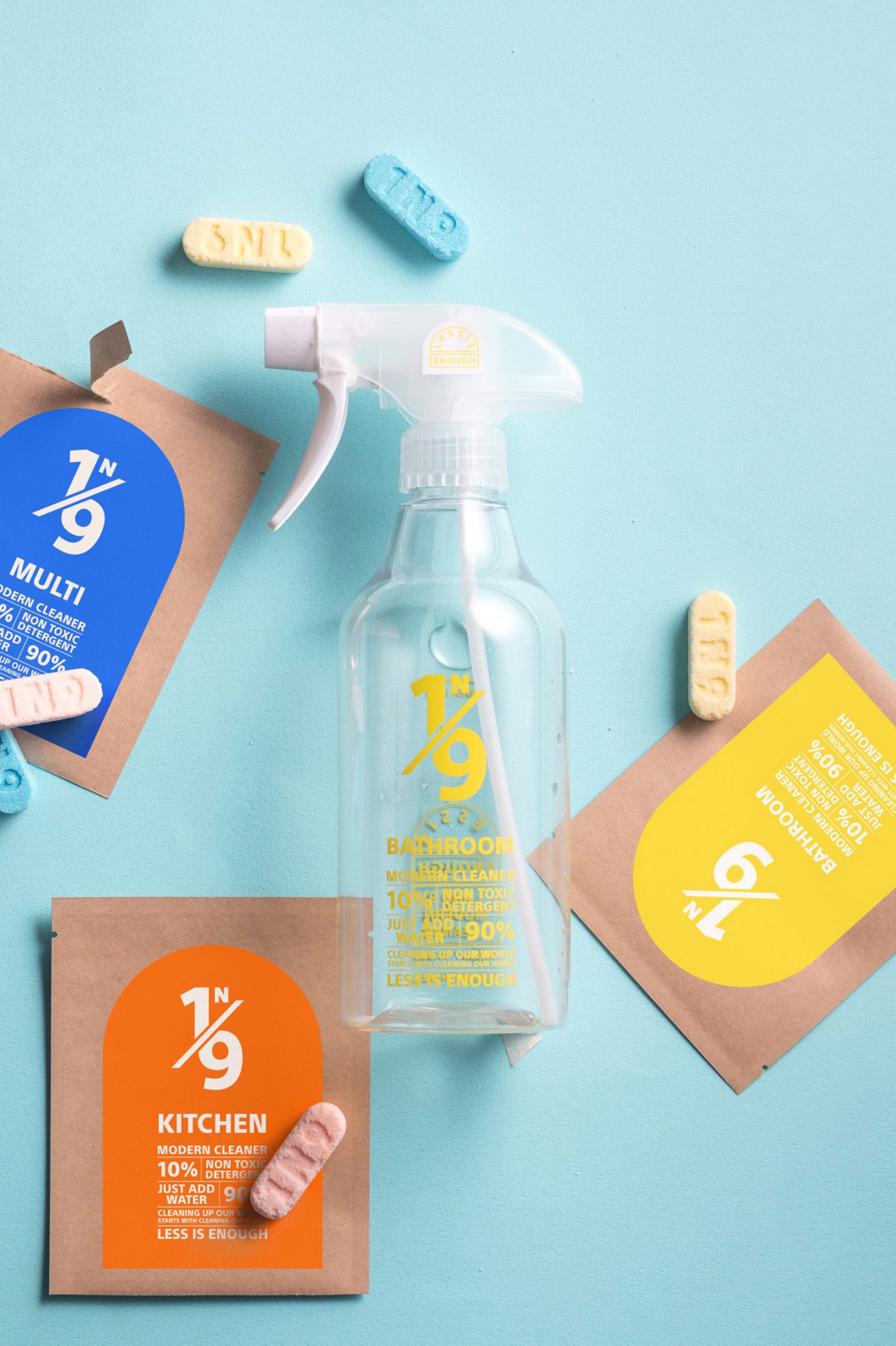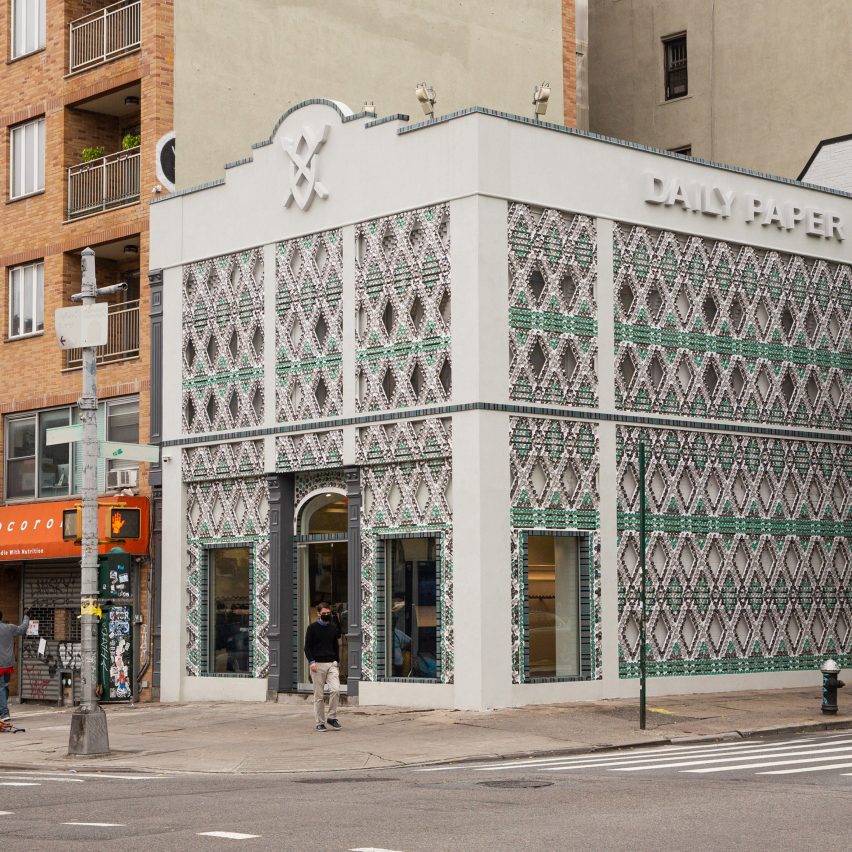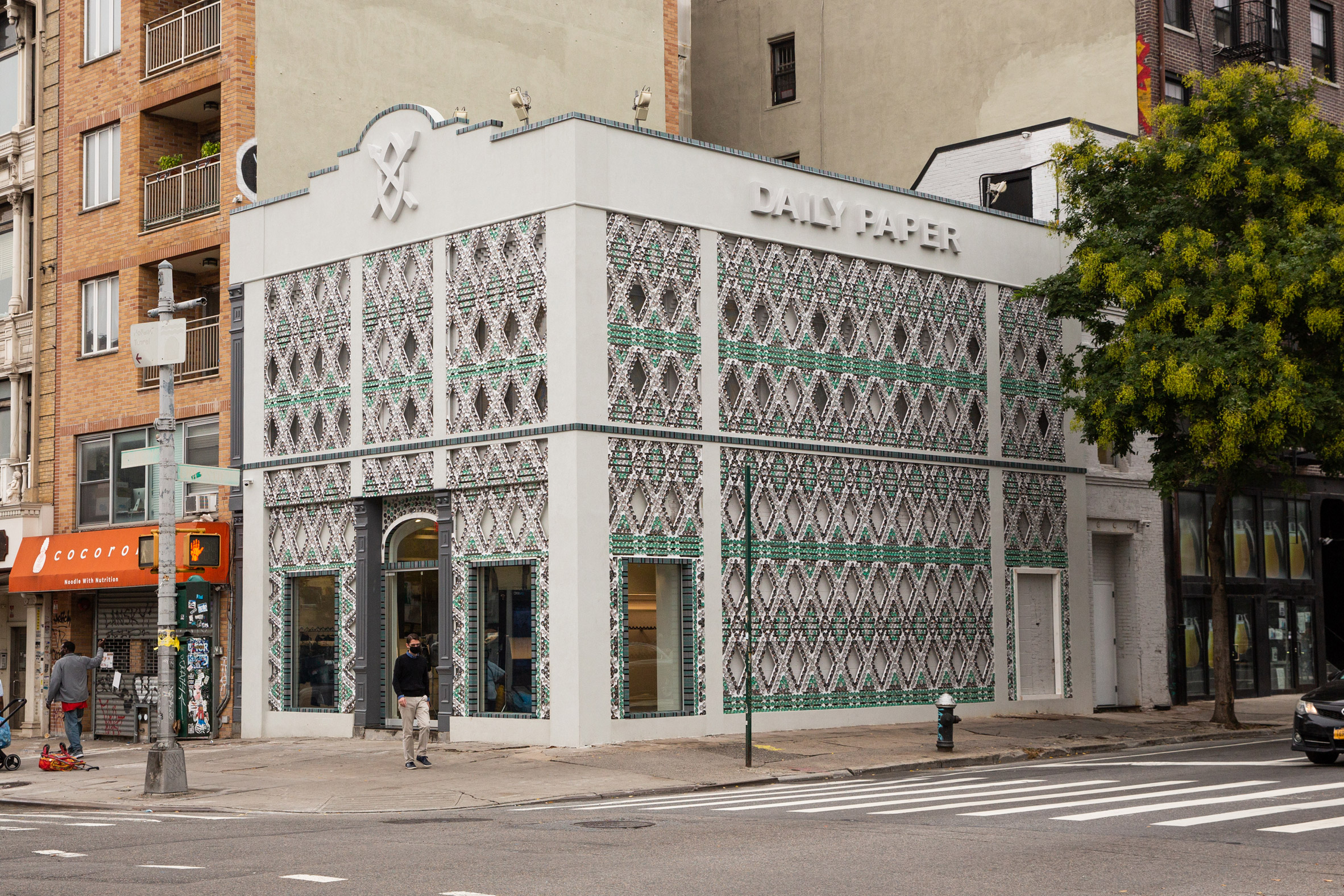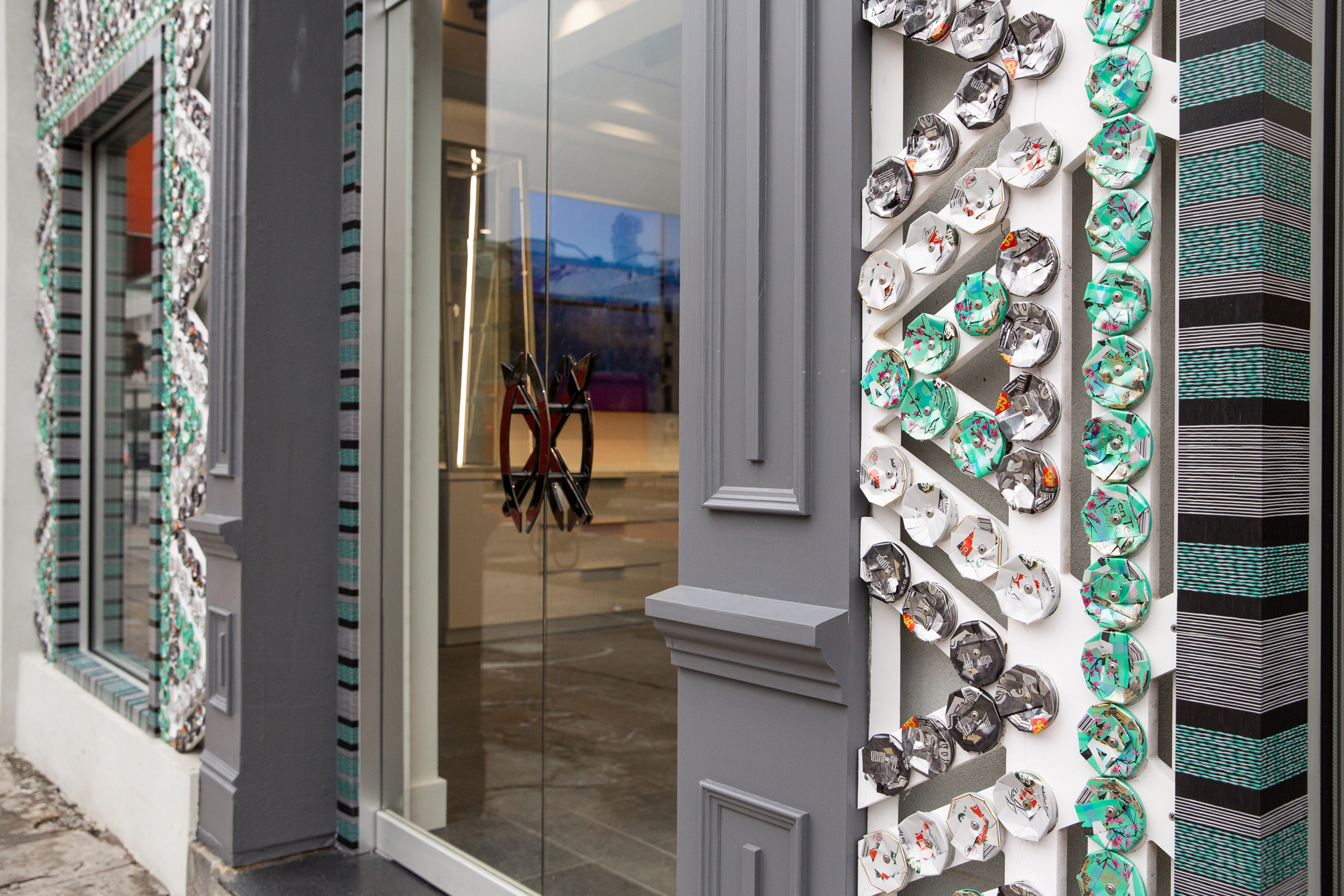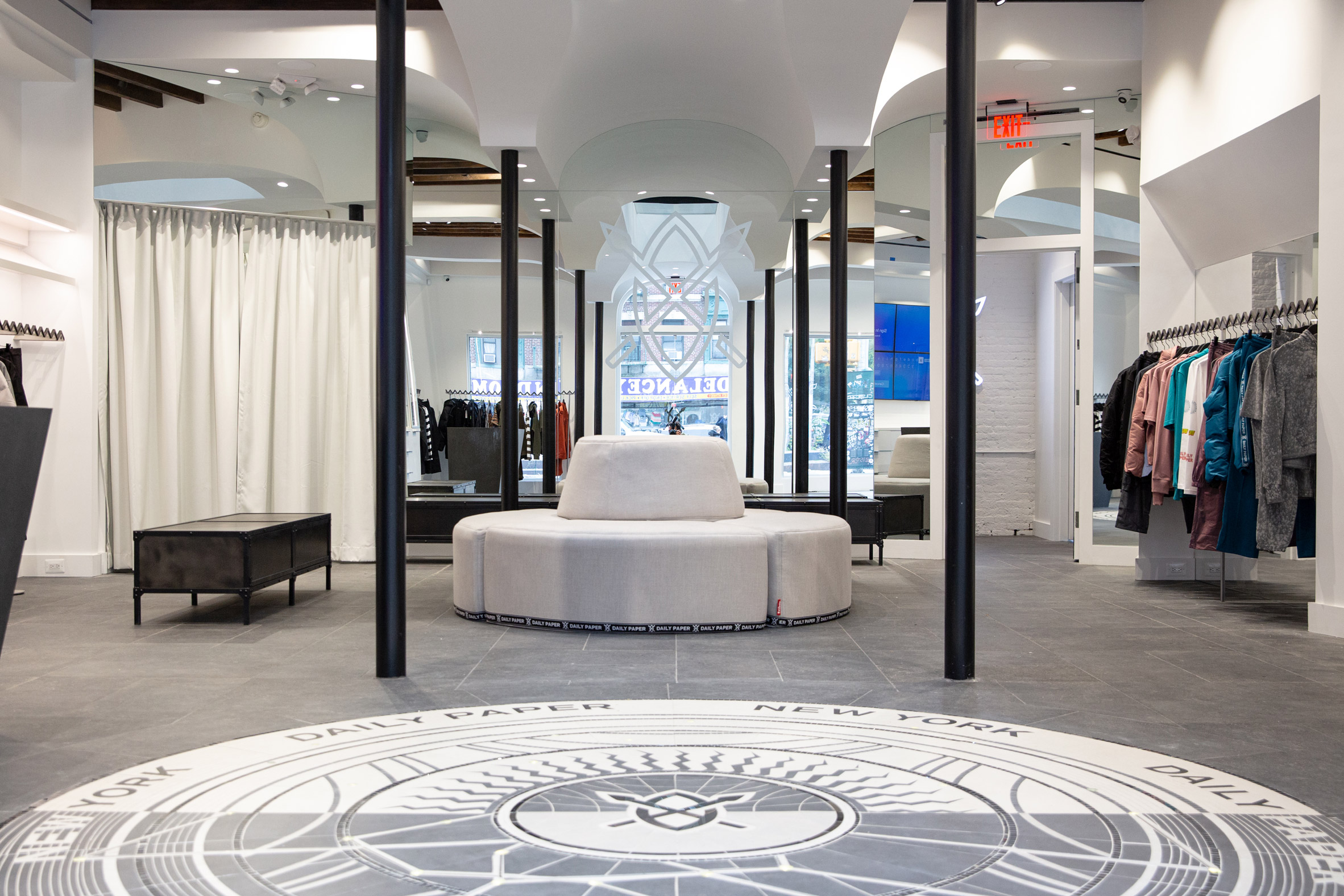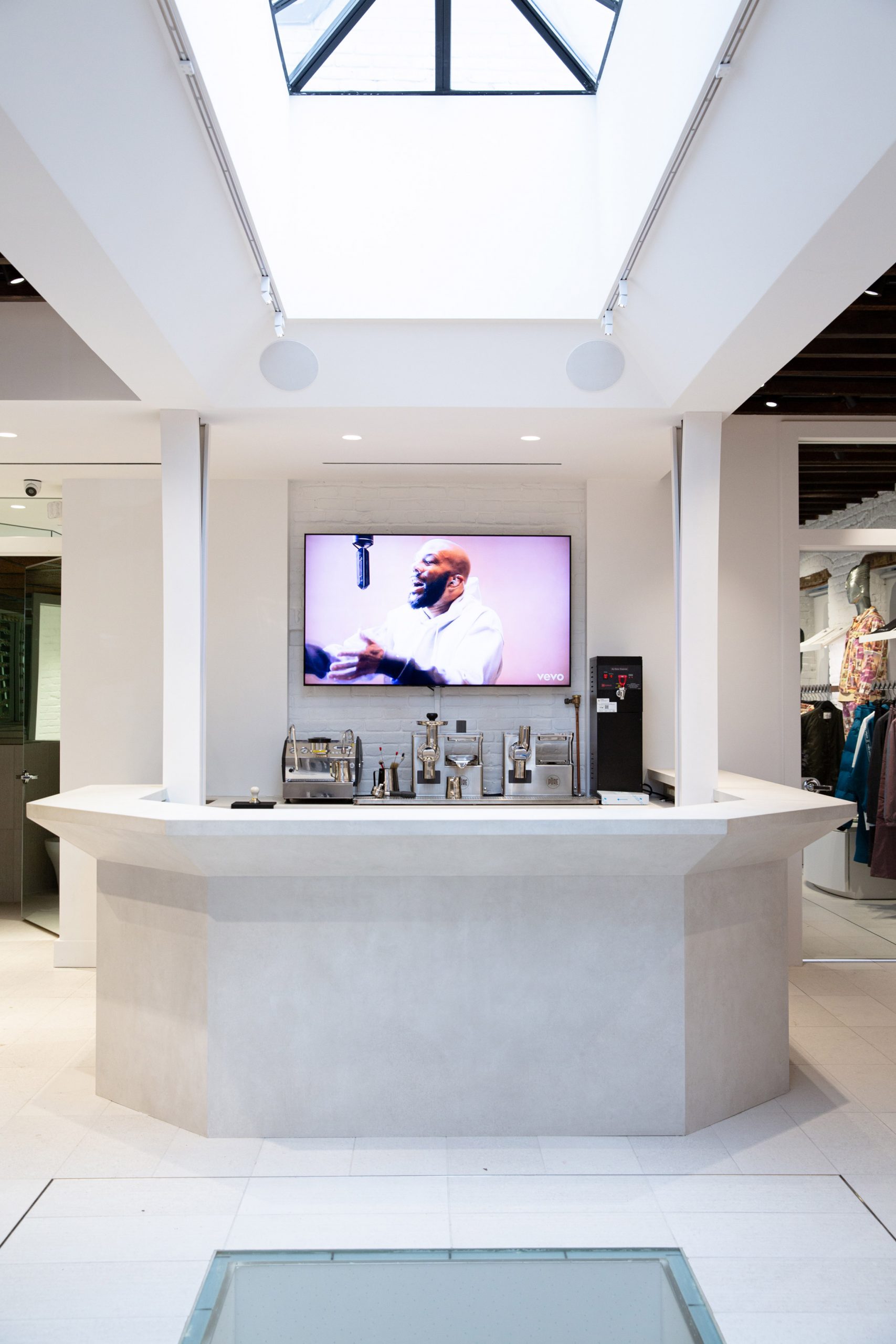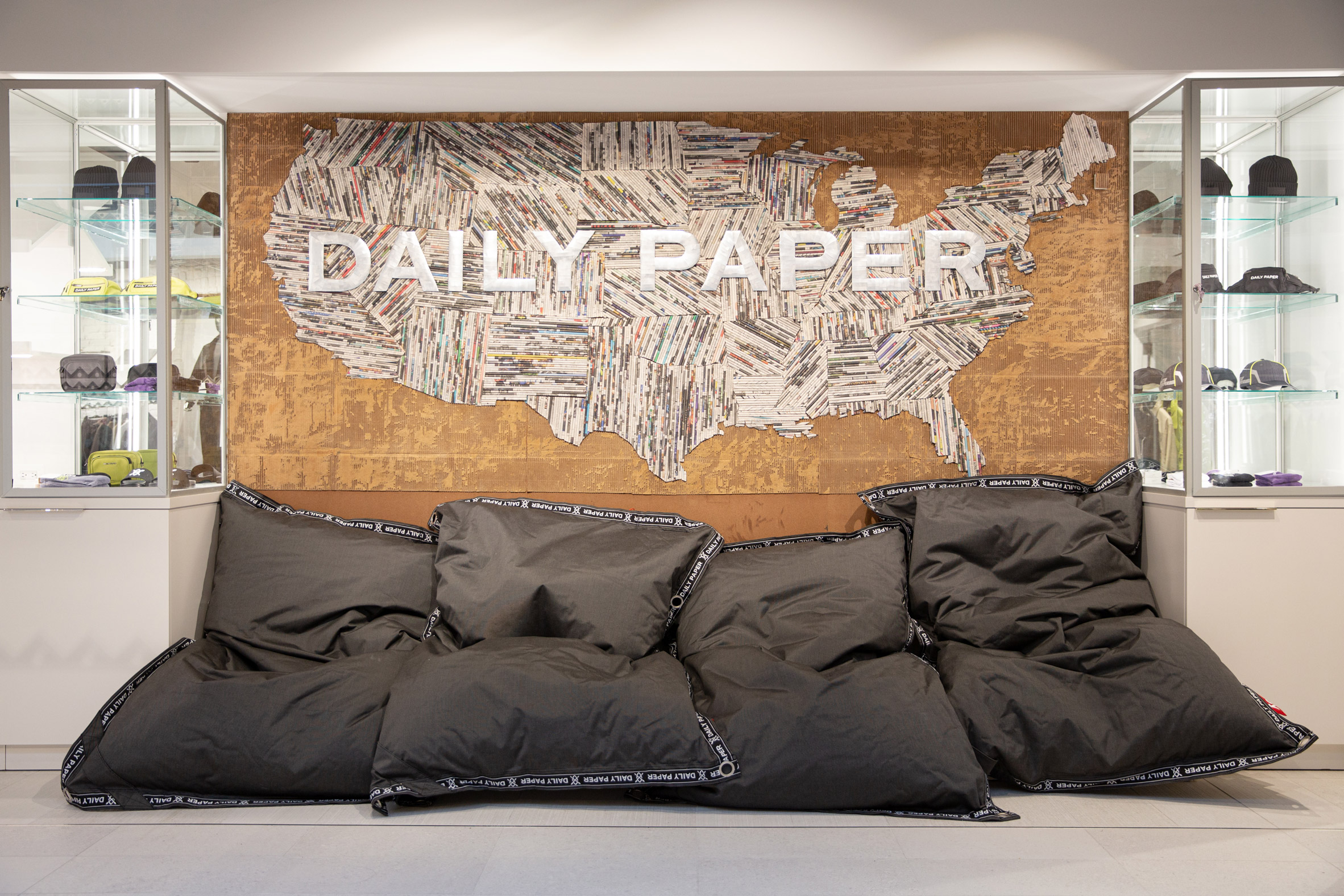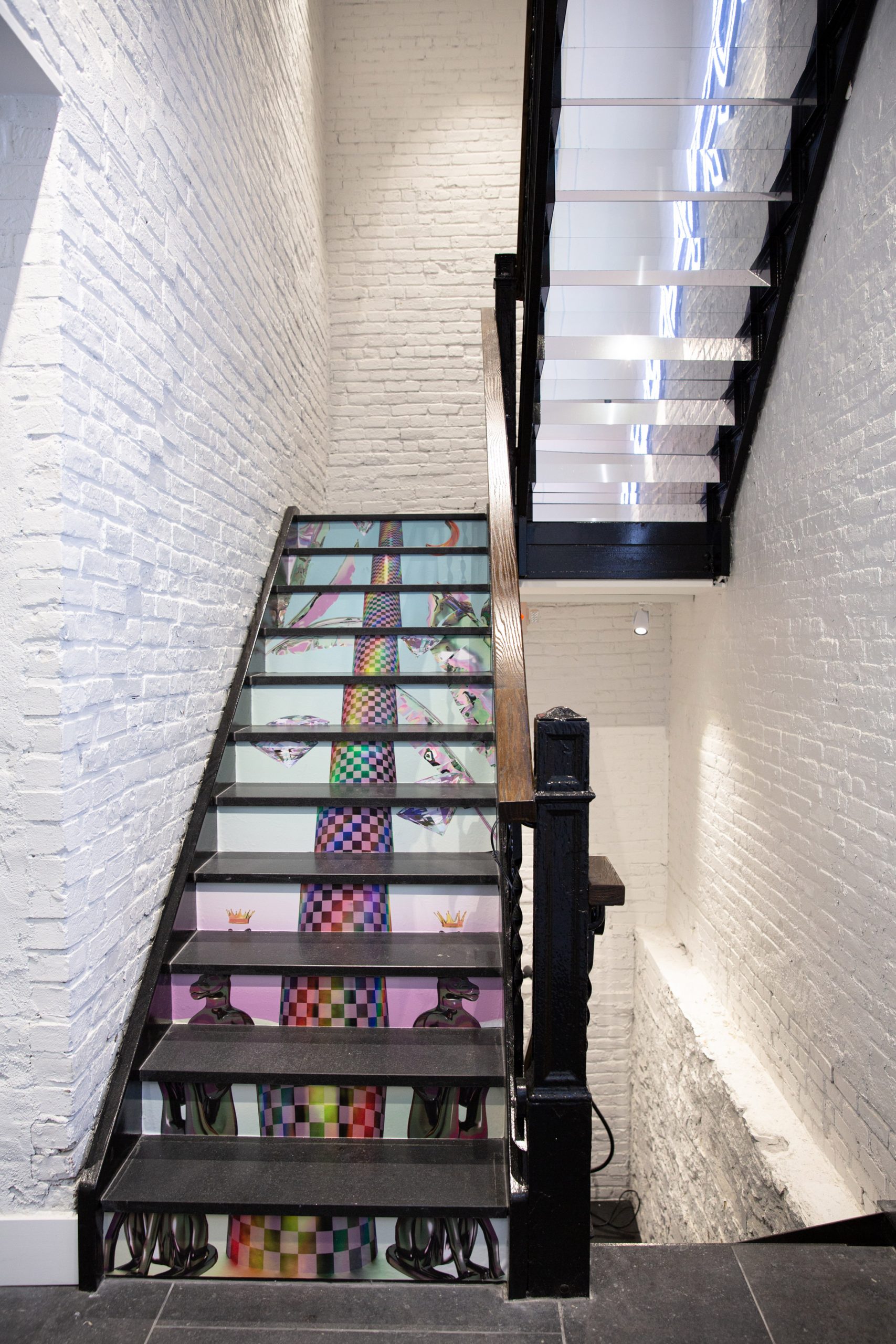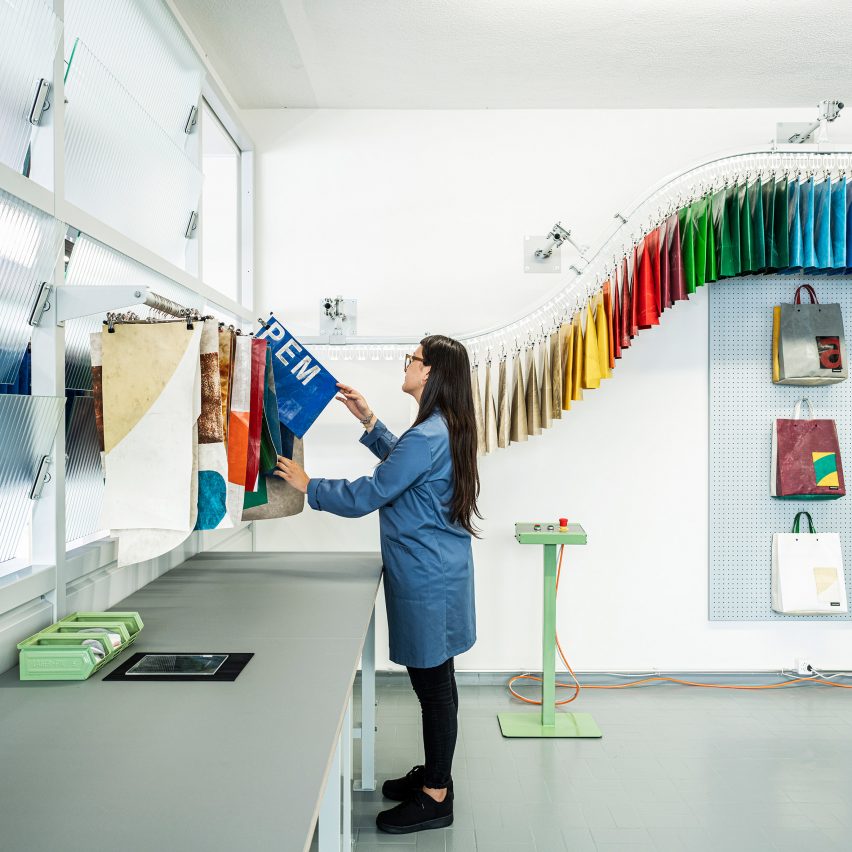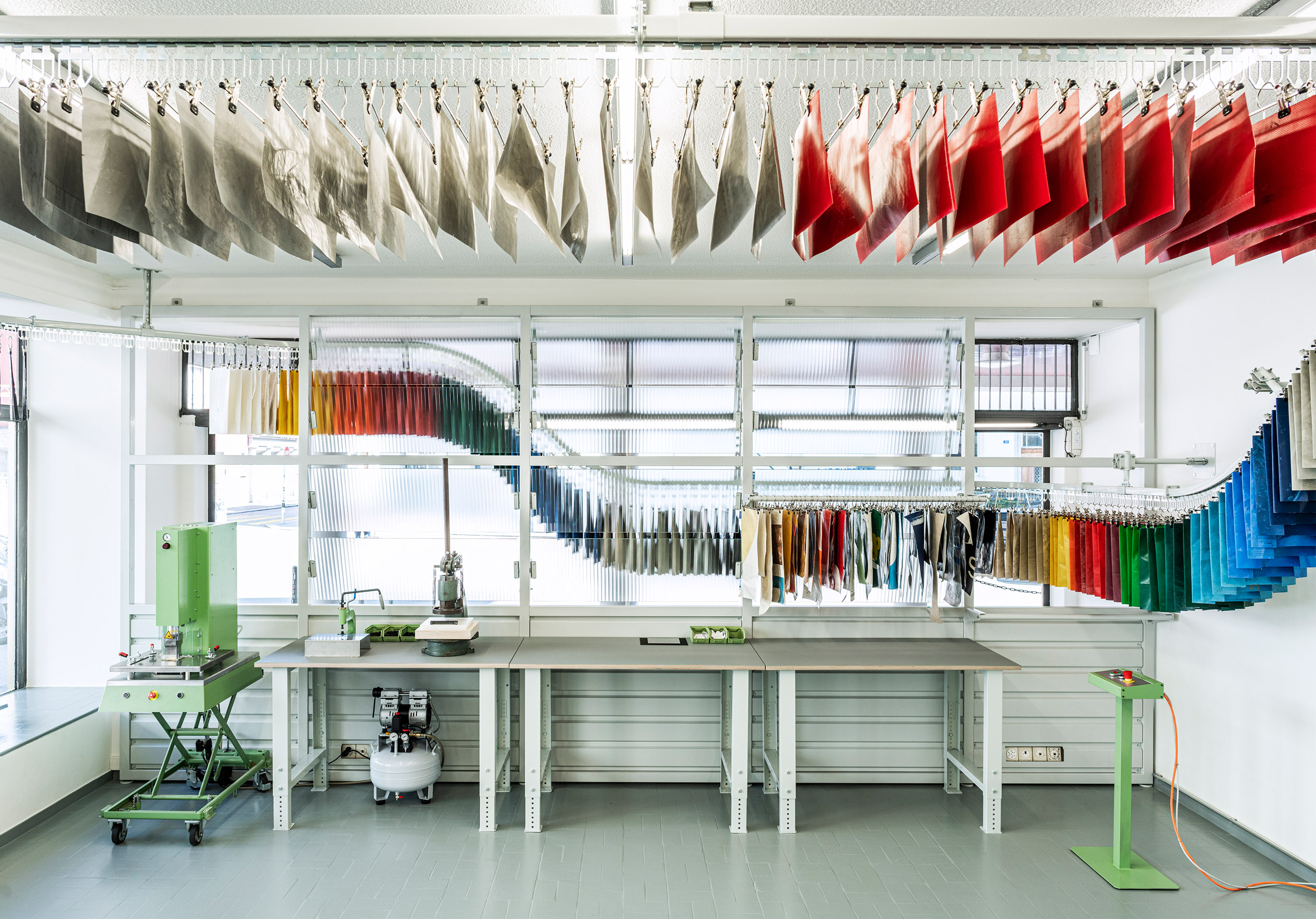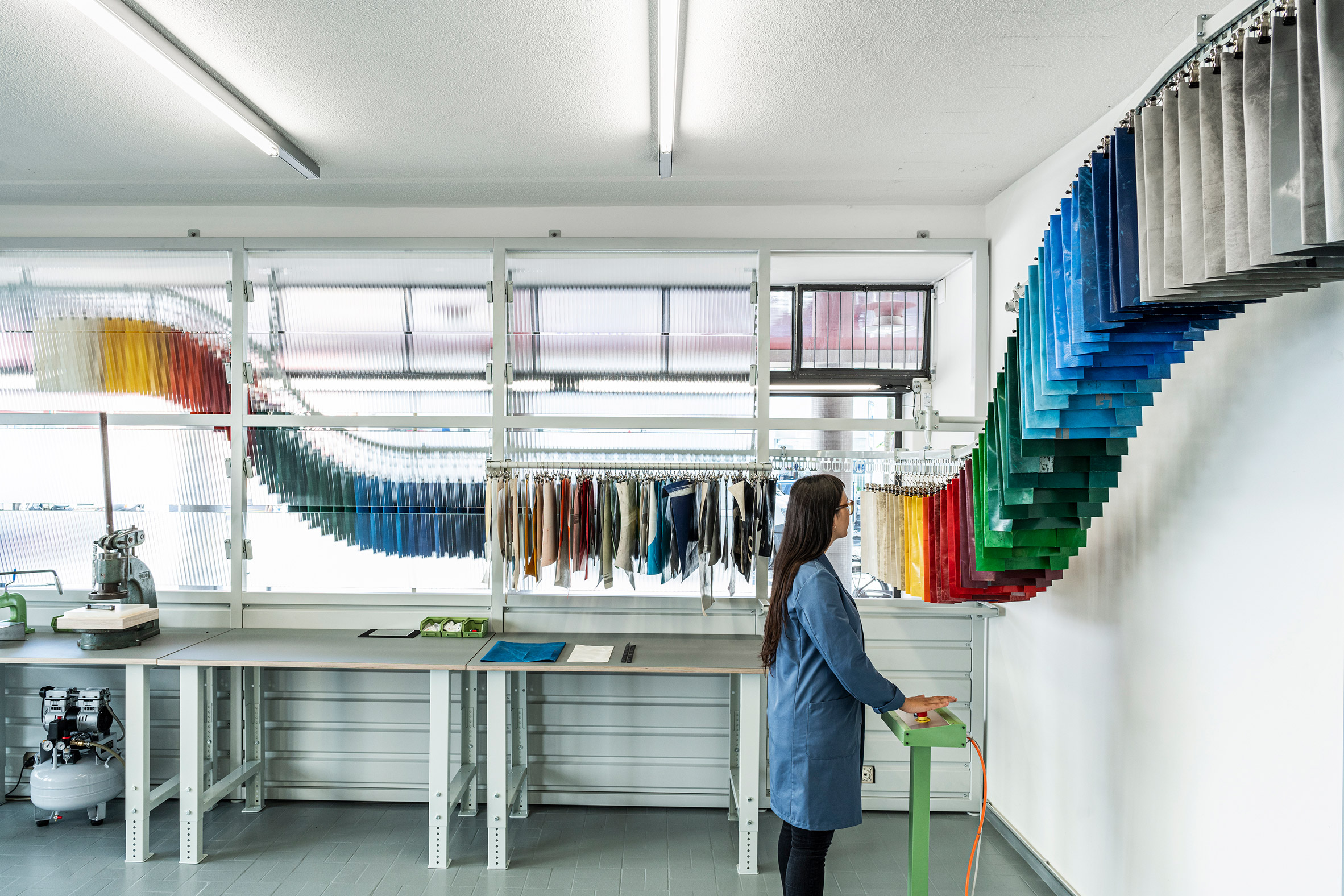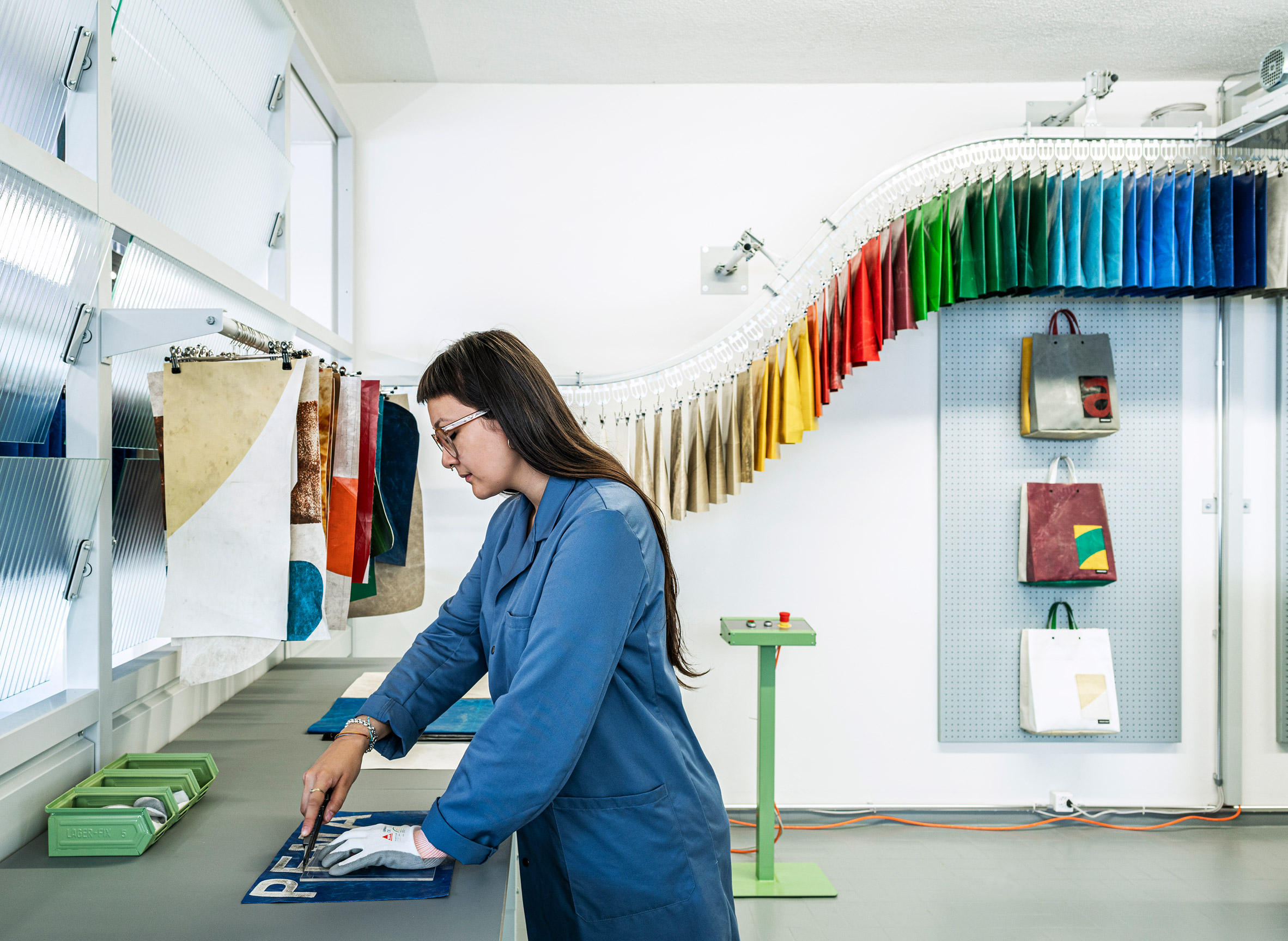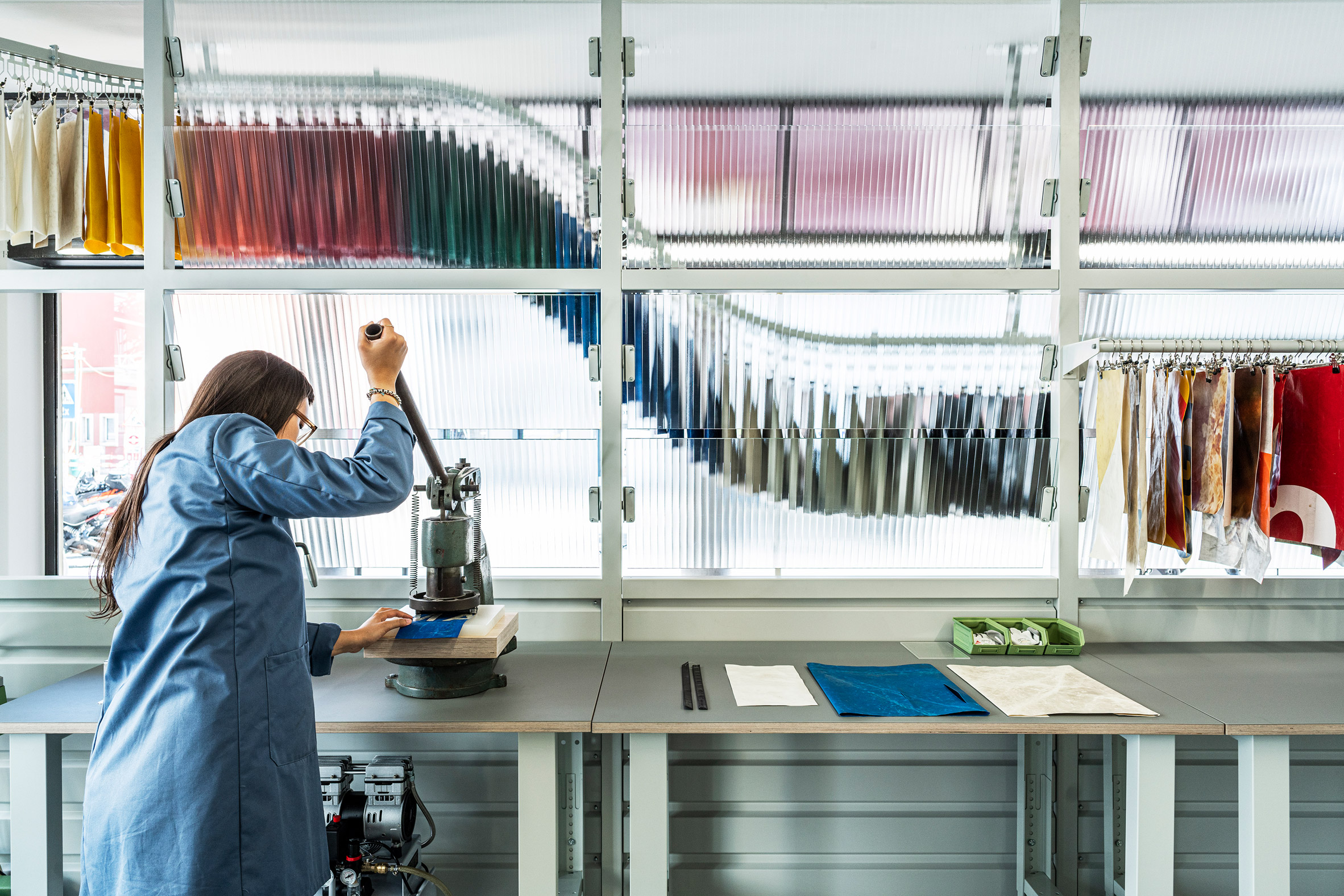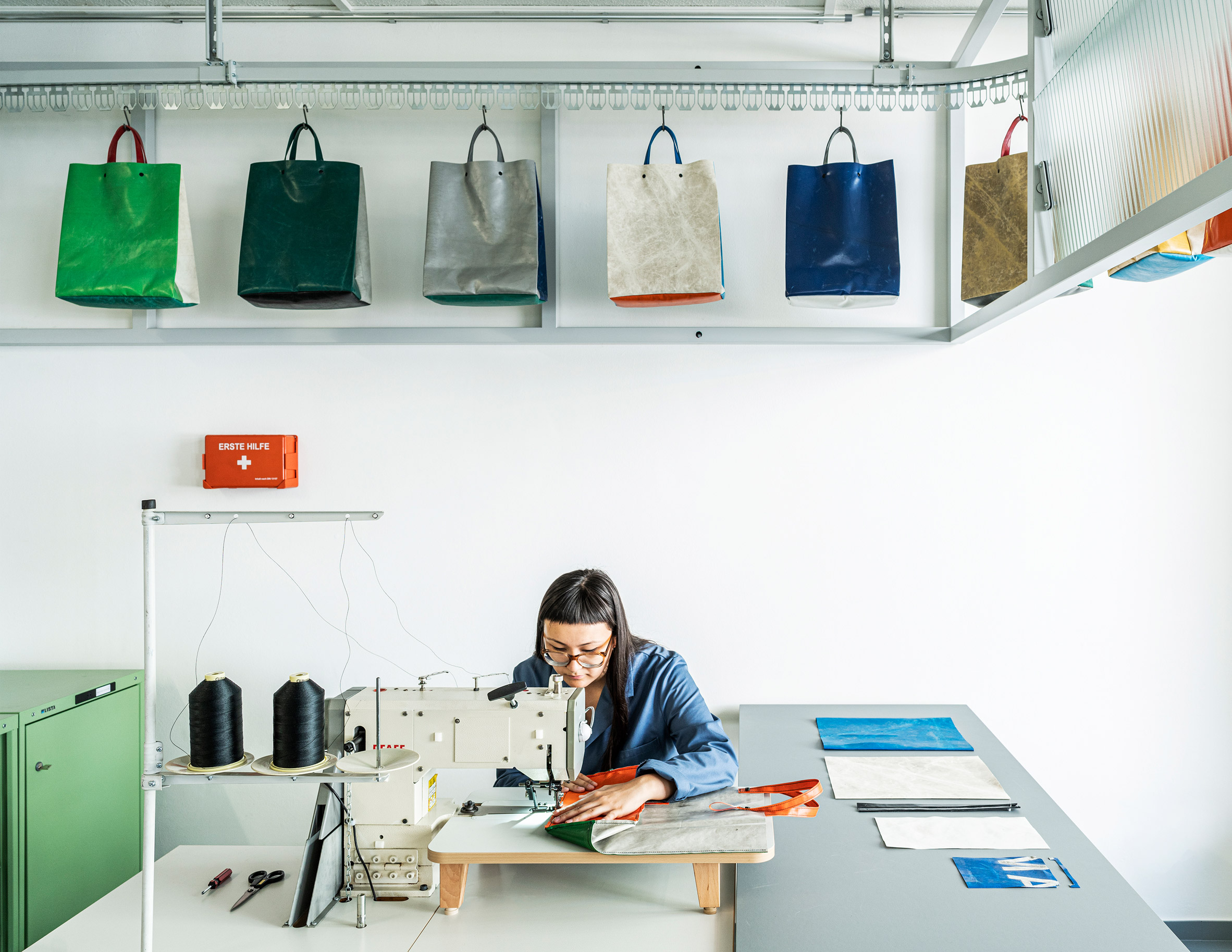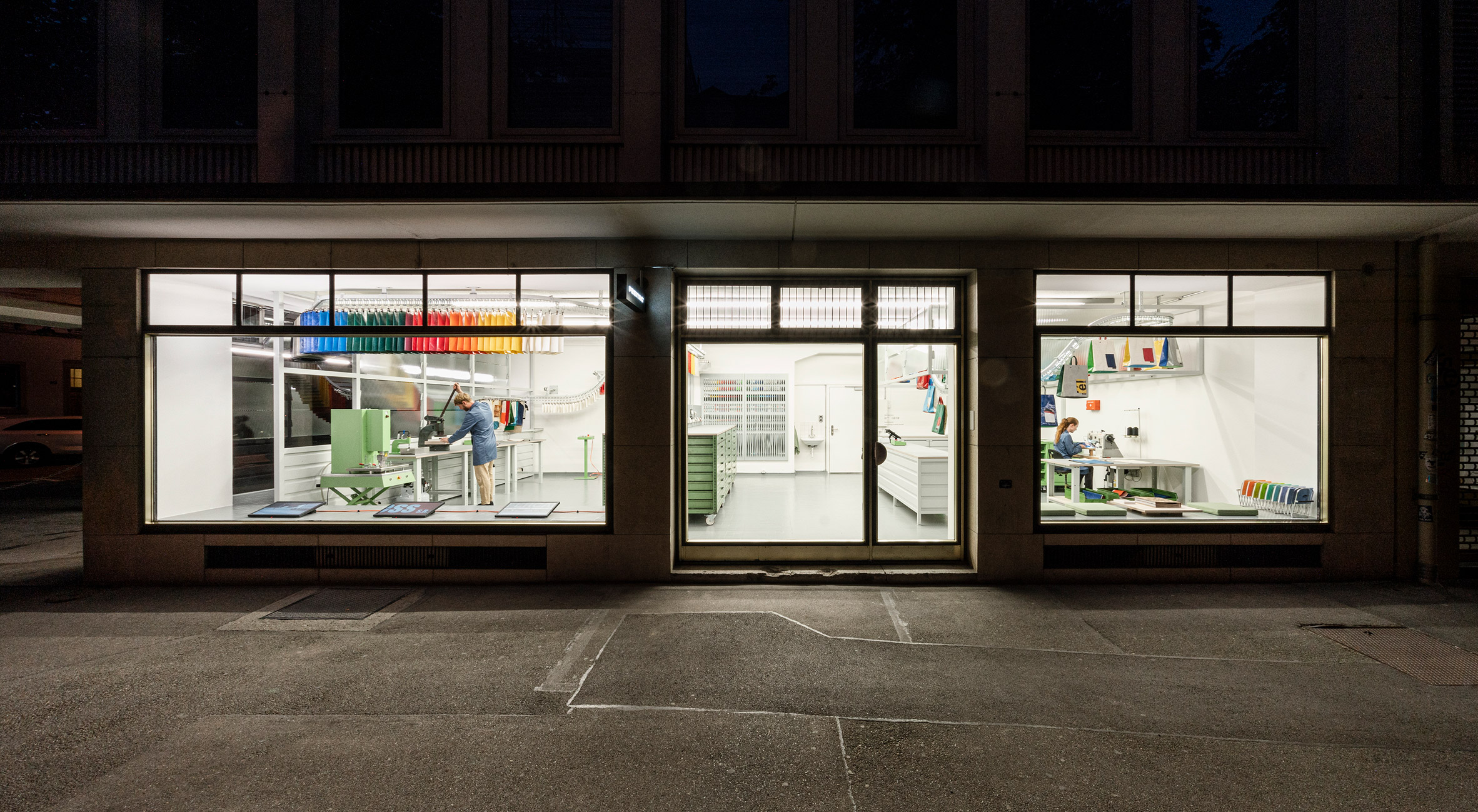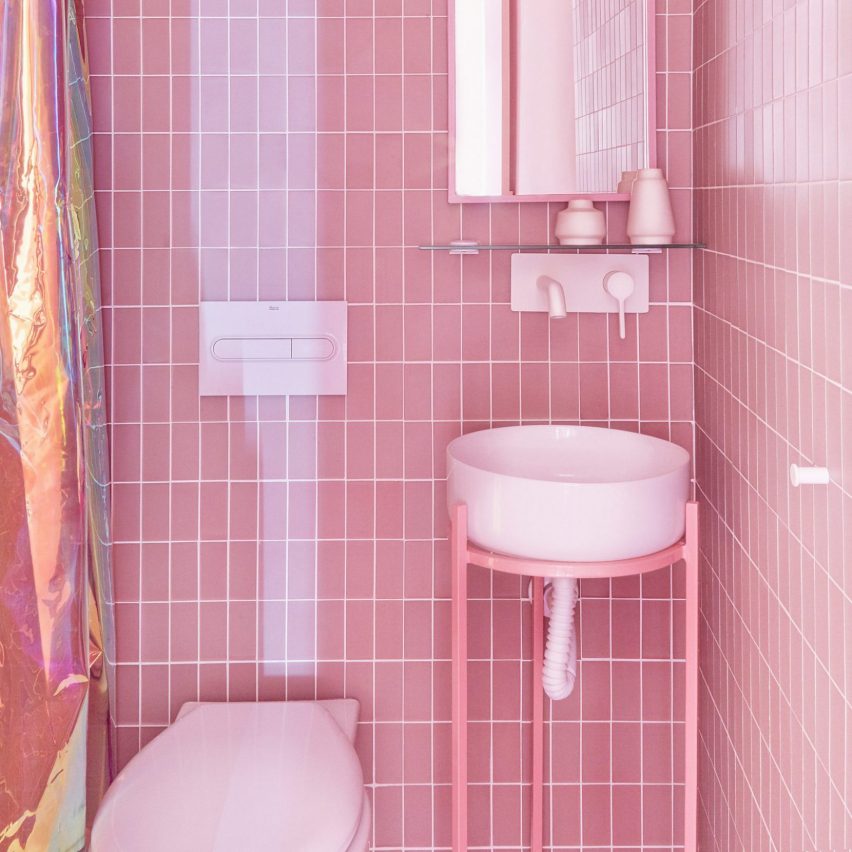Making improvements to your home because you're spending so much more time there? Here are 30 bathrooms designed by architects to give you some ideas.
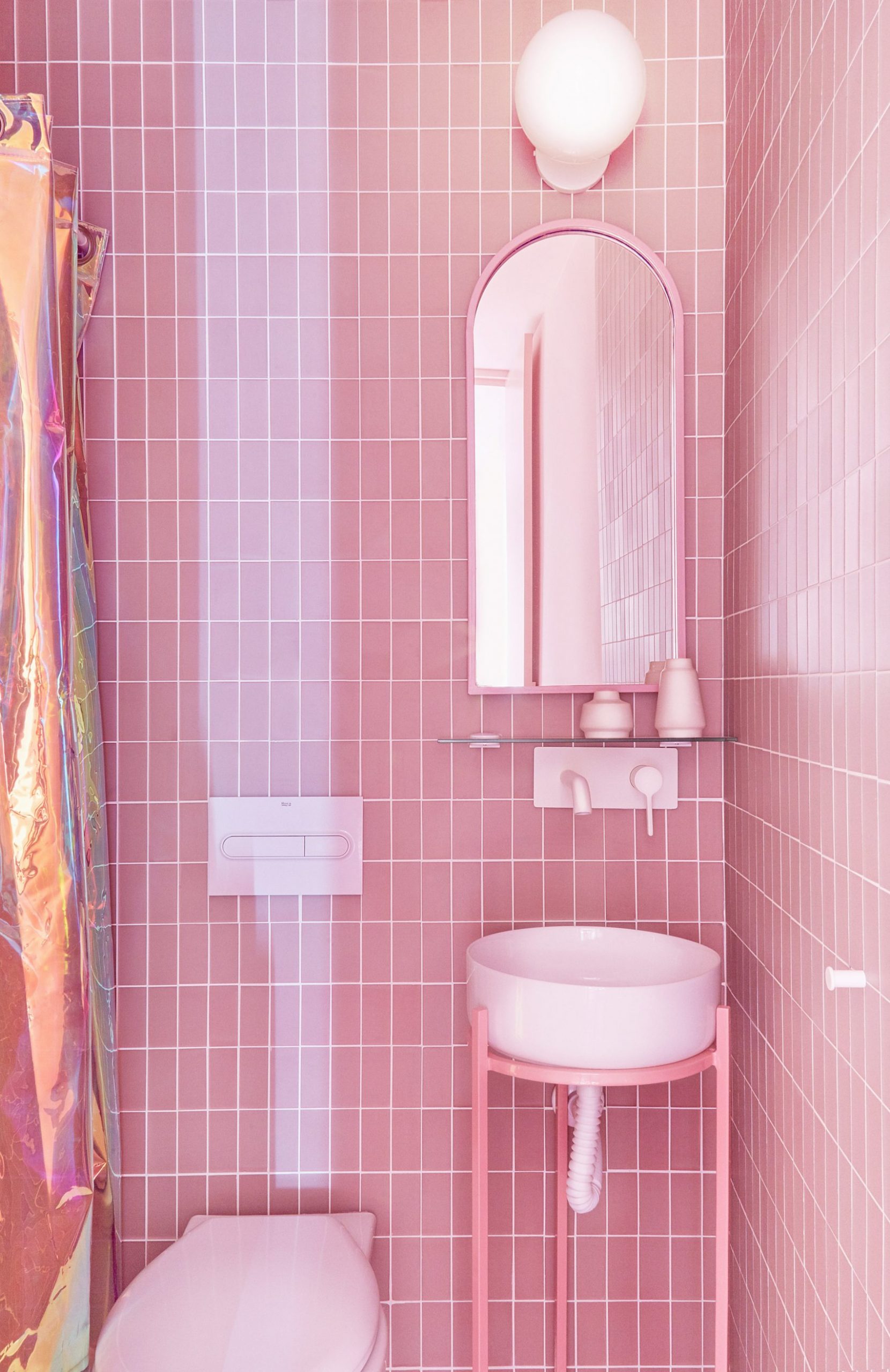
Minimal Fantasy apartment by Patricia Bustos Studio
Designed by Patricia Bustos Studio, this pink bathroom has shiny pink curtains and mirrors with pink frames to match the rest of the apartment in Madrid, which is almost entirely pink.
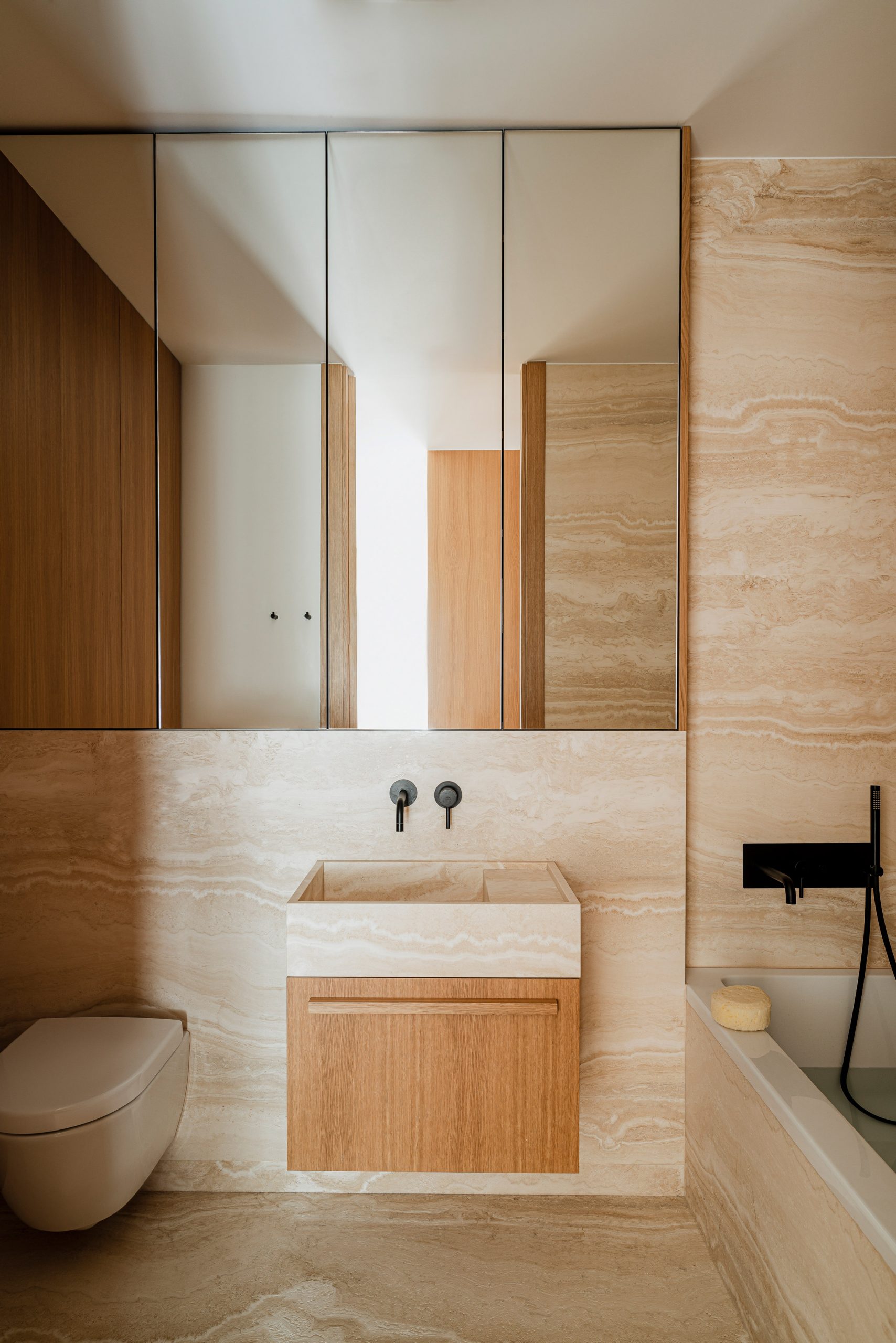
Botaniczna Apartment by Agnieszka Owsiany Studio
This bathroom in a Poznań apartment designed by Agnieszka Owsiany Studio for a couple working in medicine has travertine marble walls and a travertine basin.
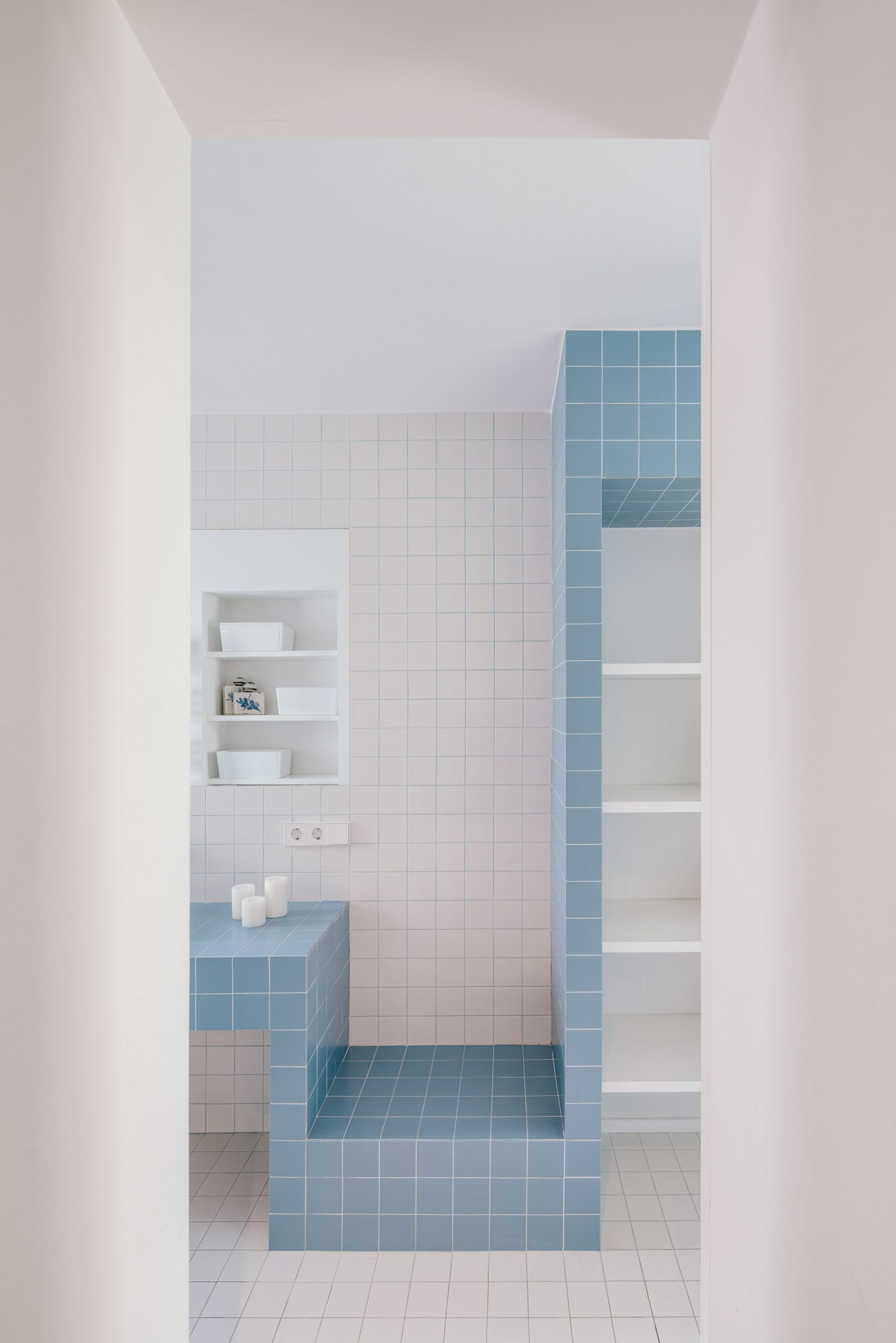
House 6 by Zooco Estudio
Zooco Estudio covered the walls and floors of this bathroom in Madrid with white tiles and blue grouting. A geometric counter clad with blue tiles snakes across the ground and up the wall to form a storage closet in the space.
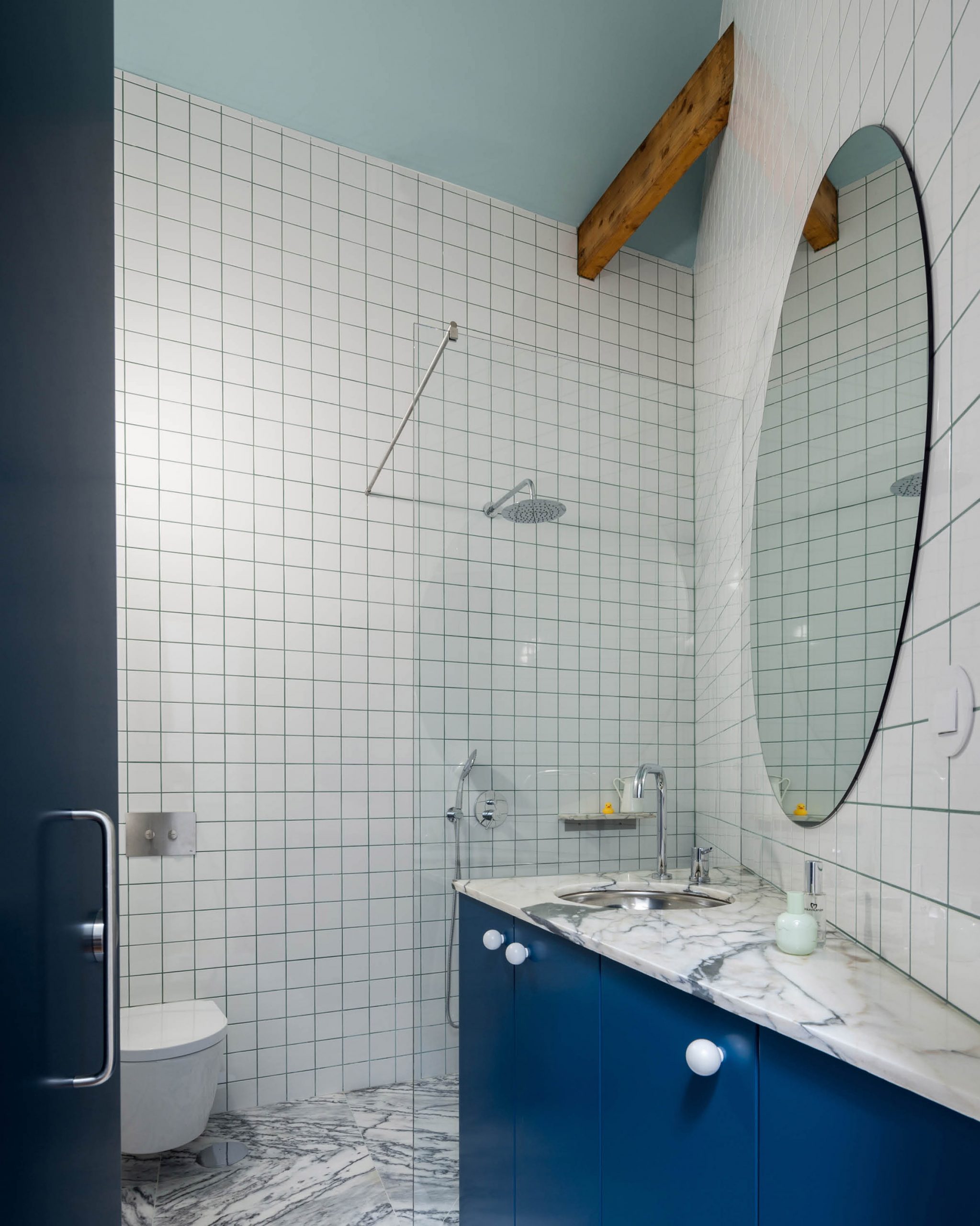
Porto house by Fala Atelier
Fala Atelier used square white tiles for this bathroom in a house in Porto. The tiles are paired with marble countertops, blue cupboard doors and a large round mirror over the sink.
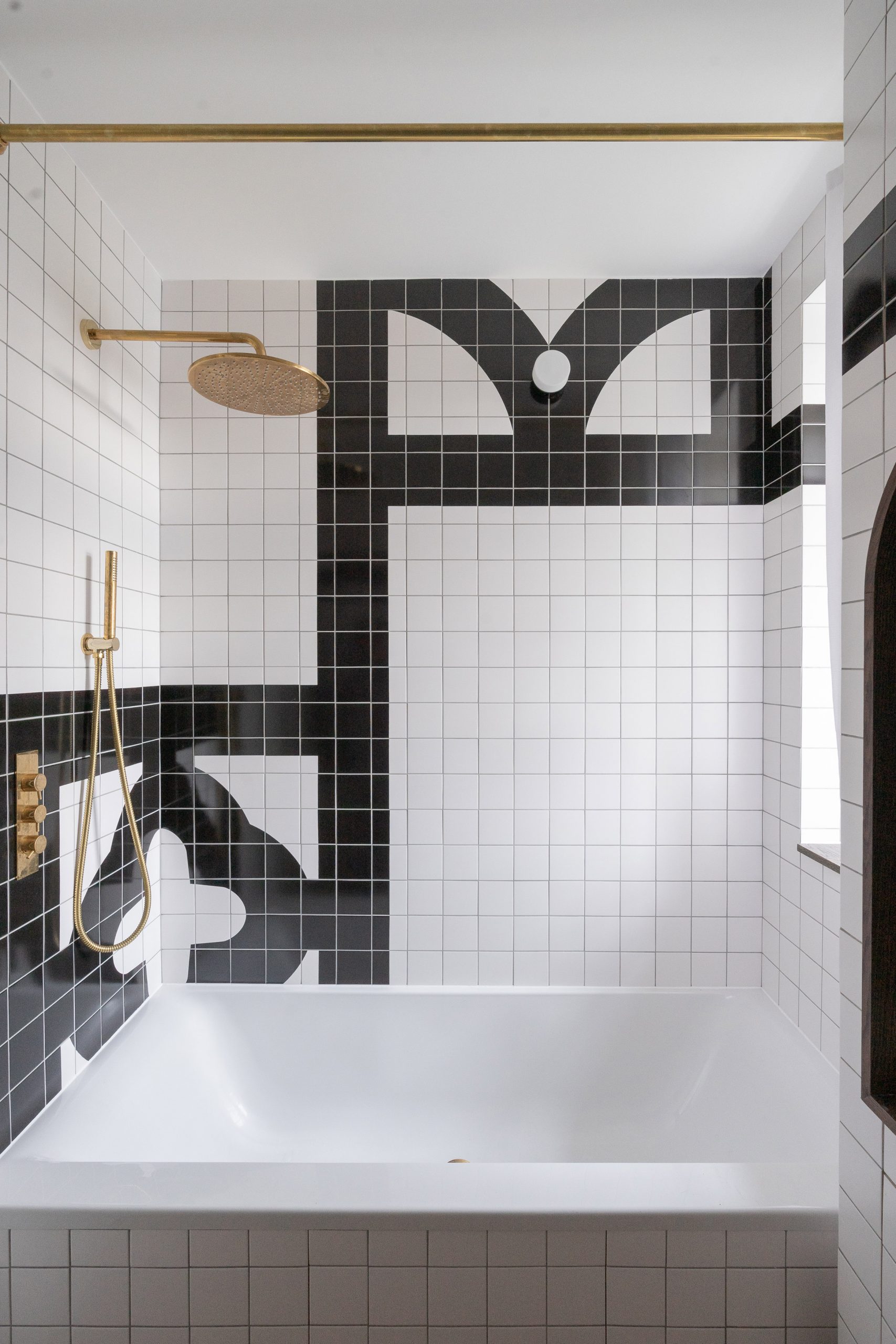
Makepeace Mansions apartment by Surman Weston
The bathroom in this apartment designed by Surman Weston is finished with hand-painted tiles that are arranged to form a black-and-white graphic pattern that mimics the housing block's mock-Tudor facade.
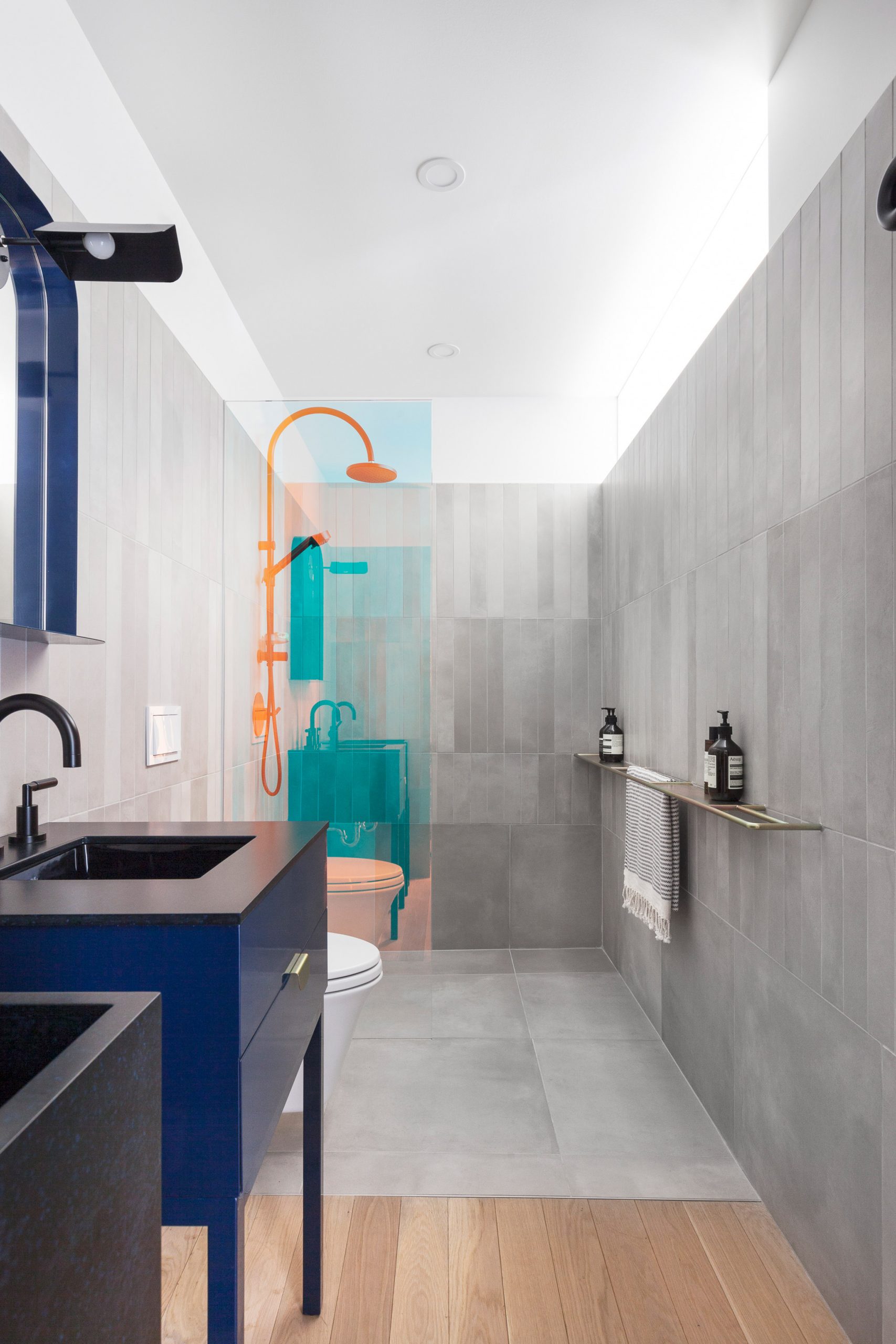
Unit 622 by Rainville Sangaré
Set in an apartment within Moshe Safdie's brutalist Habitat 67 housing complex in Montreal, this bathroom designed by Rainville Sangaré has colour-changing shower screens.
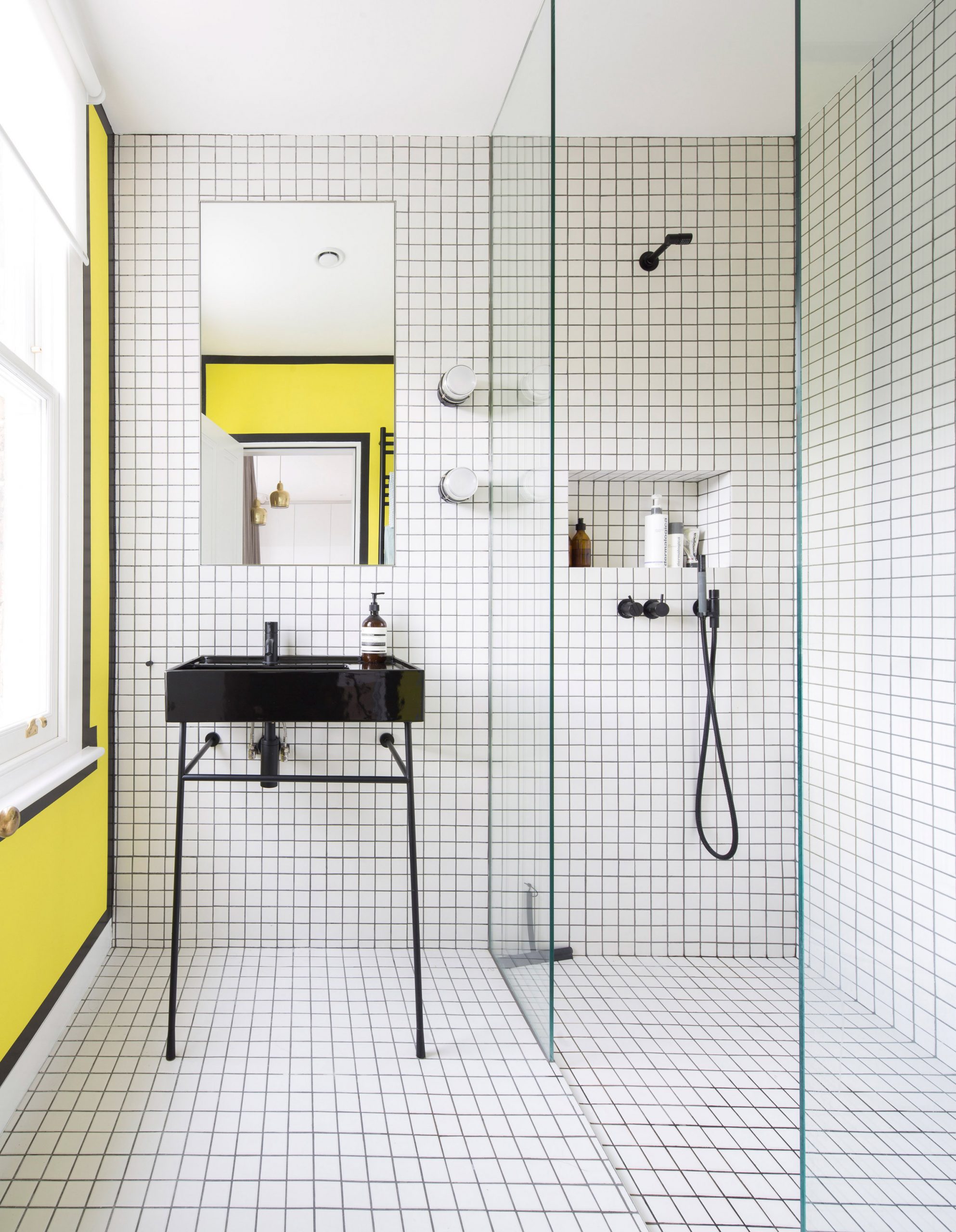
Rylett House by Studio 30 Architects
Created as part of the renovation of a Victorian maisonette in London, this small en-suite bathroom is finished with a black grid of tiles and a bright yellow wall.
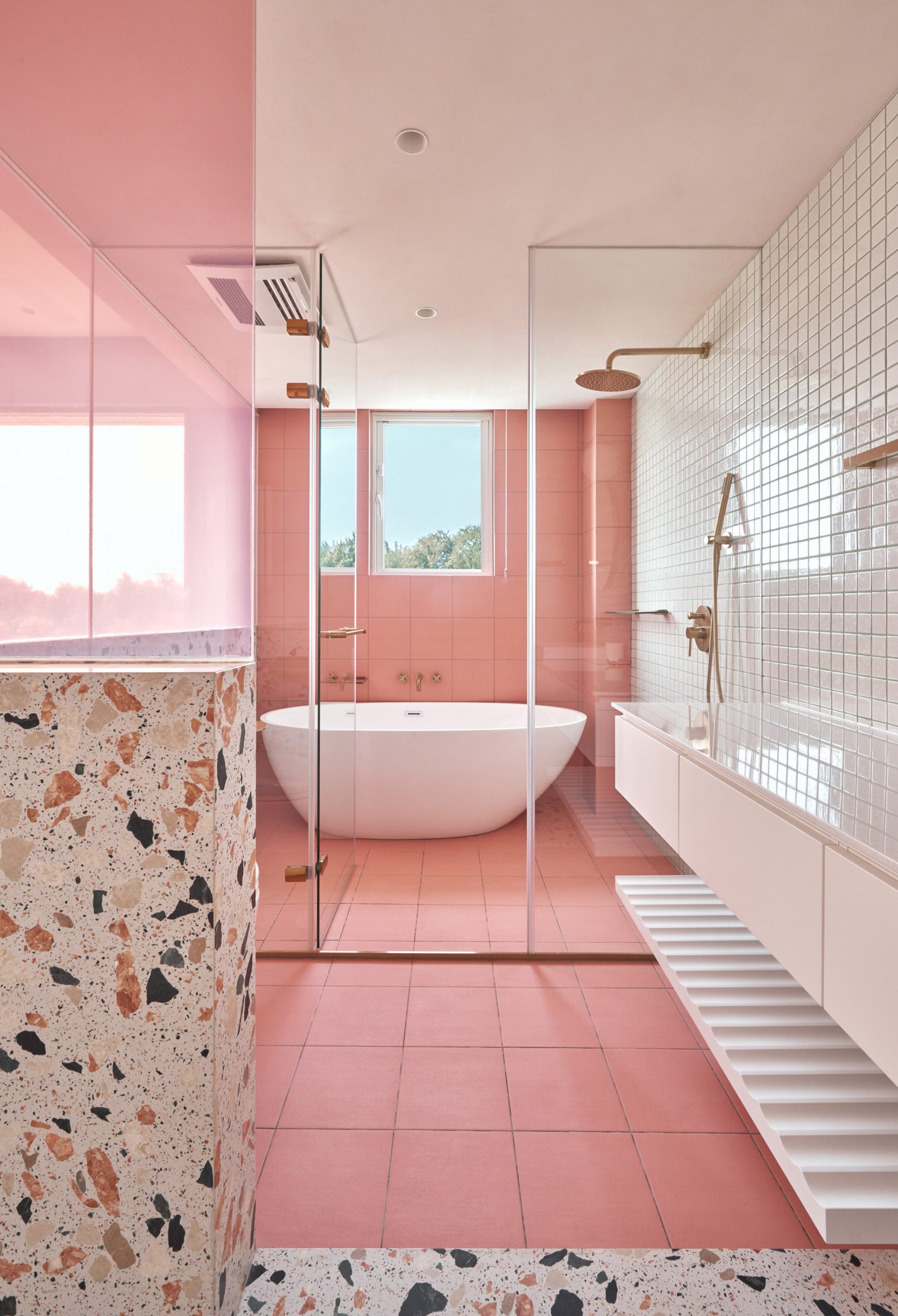
Cats' Pink House by KC Design Studio
This holiday home in Taiwan is designed with a focus on the owner's cat and includes cat ladders, a rotating carousel-shaped climbing frame and a fluffy pink swing. Its bathroom combines larger square pink floor tiles with a wall made from terrazzo with large flecks of pink and grey.
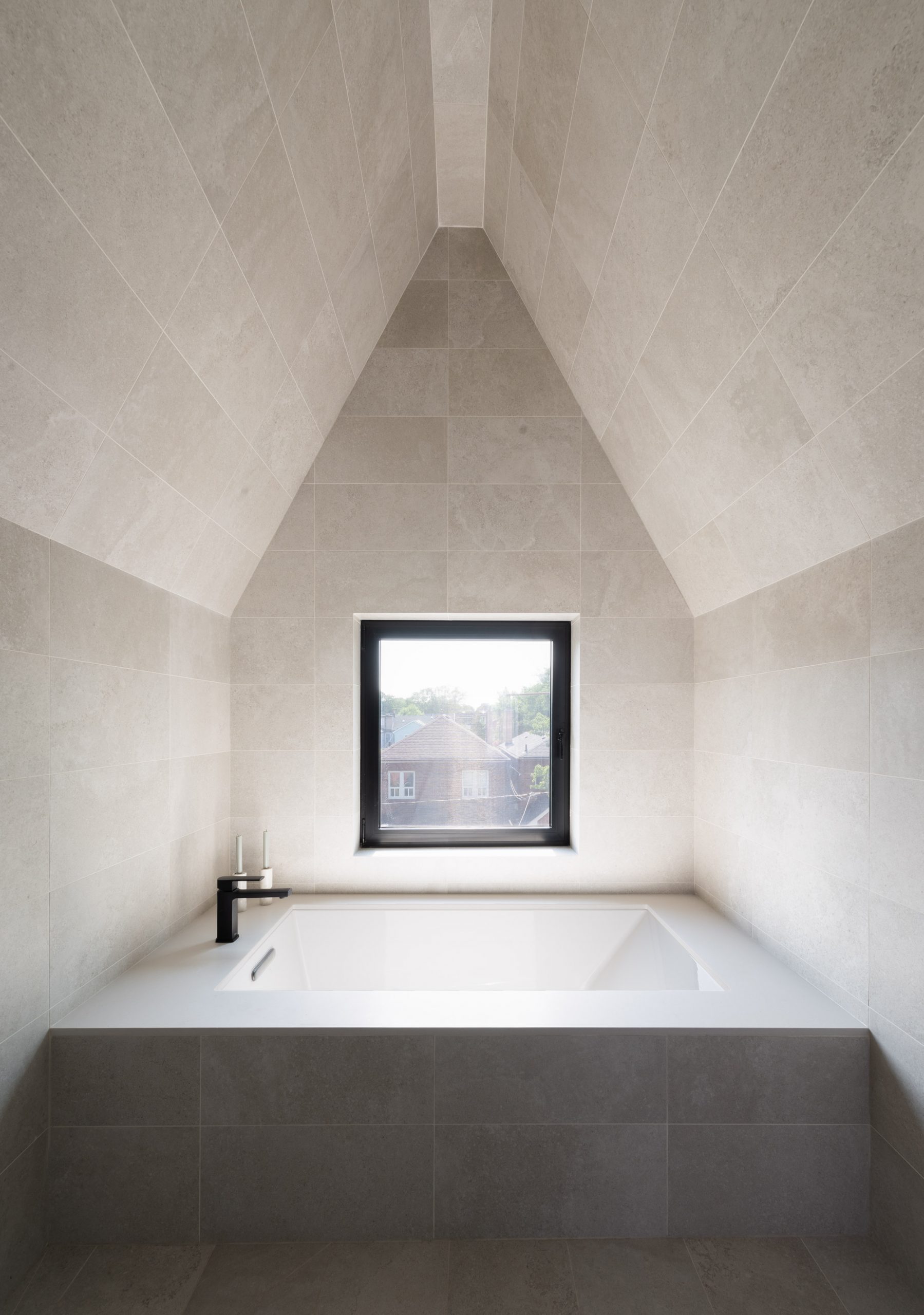
Borden house by StudioAC
This en-suite bathroom at the front of a house designed by StudioAC has pitched walls covered in grey tiles.
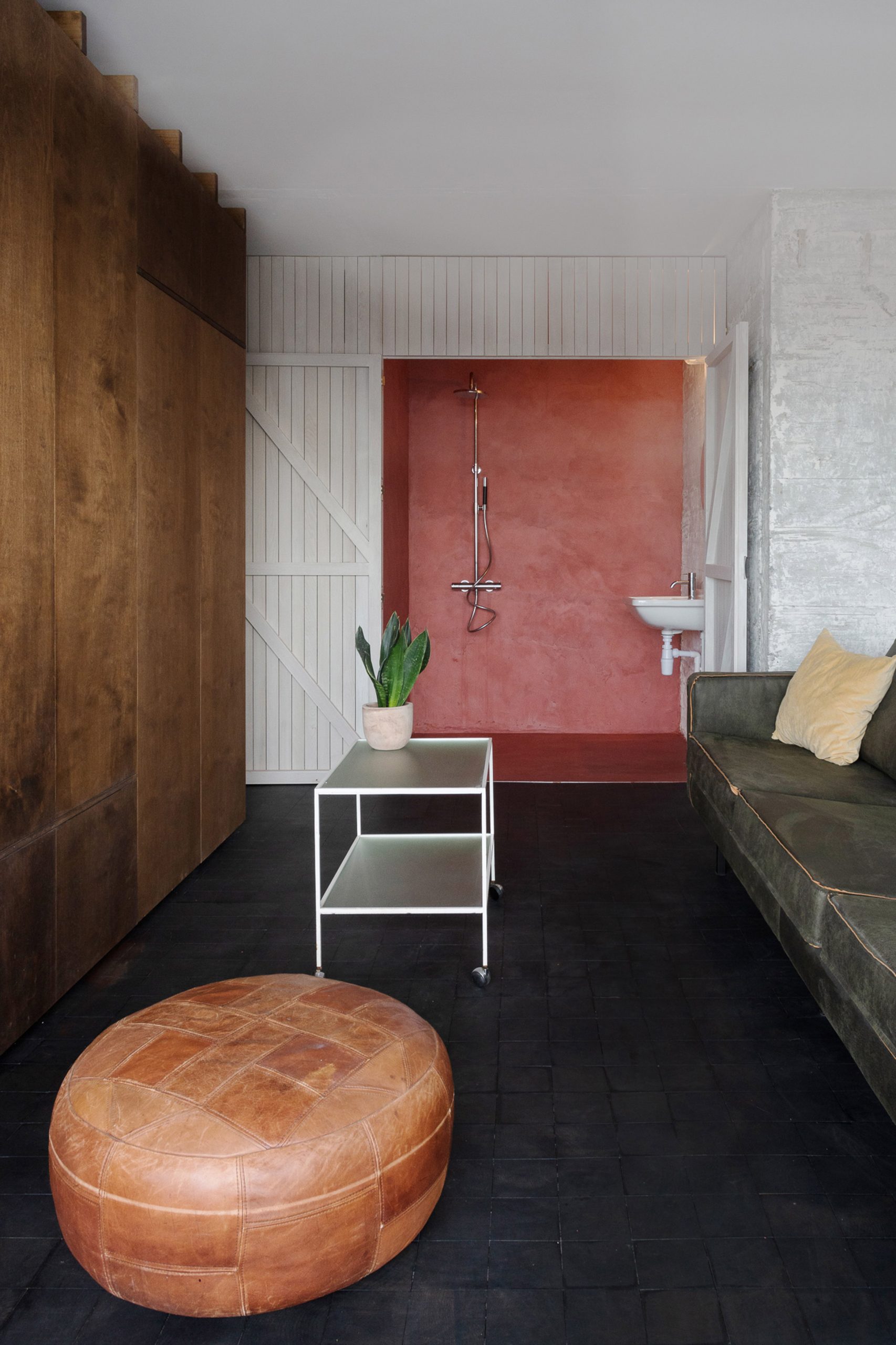
Spinmolenplein apartment by Jürgen Vandewalle
This bathroom in an apartment in Ghent's tallest building is enclosed within a white lacquered-wood box and is accessed by a set of barn-style doors. Internally the bathroom is finished with earthy, pink-tone micro cement to contrast the white wood.
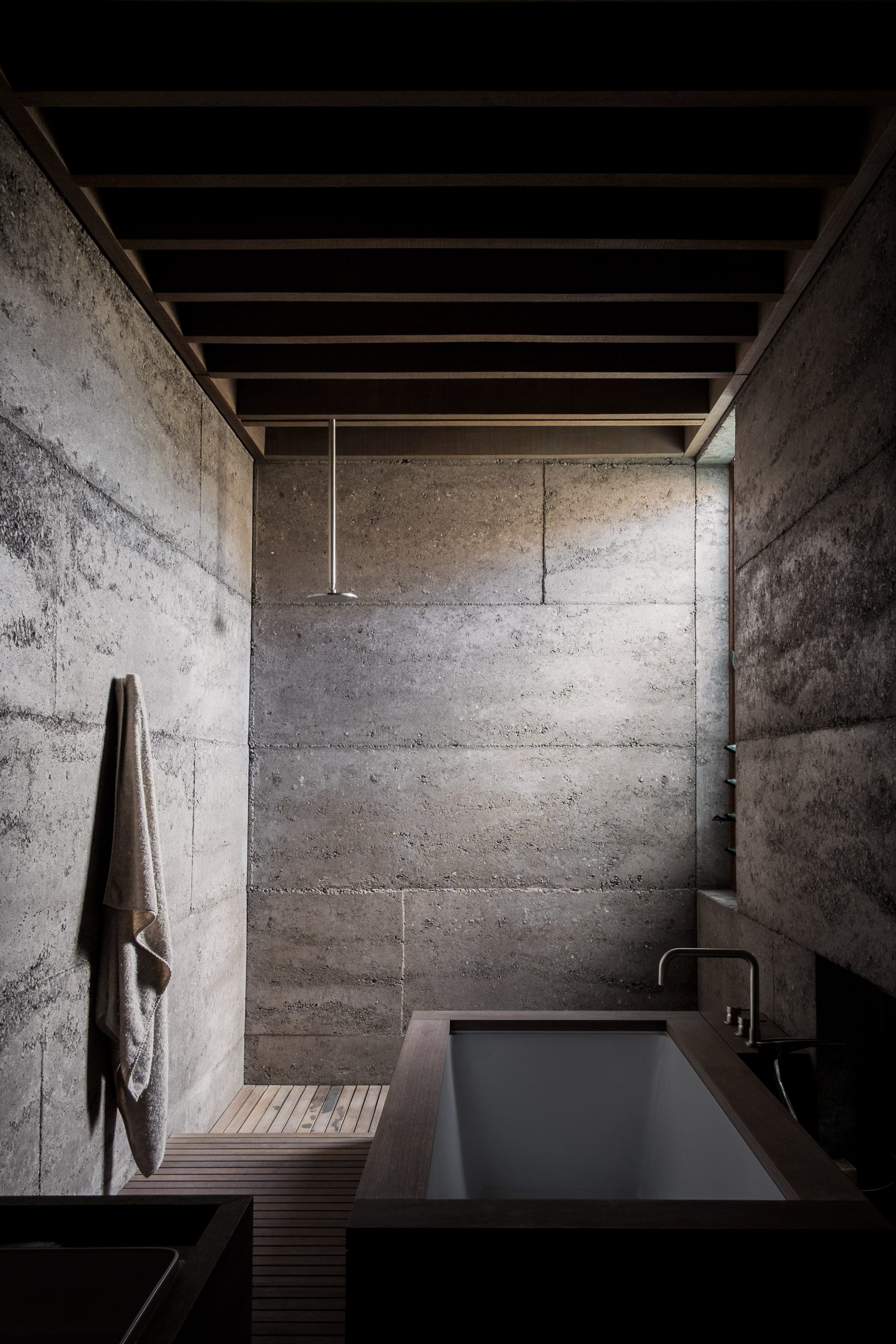
Cloister House by MORQ
The rammed-concrete walls of Cloister House in Perth have been left exposed in the bathroom where they are softened with timber slatted floors and a timber-clad bath and sink.
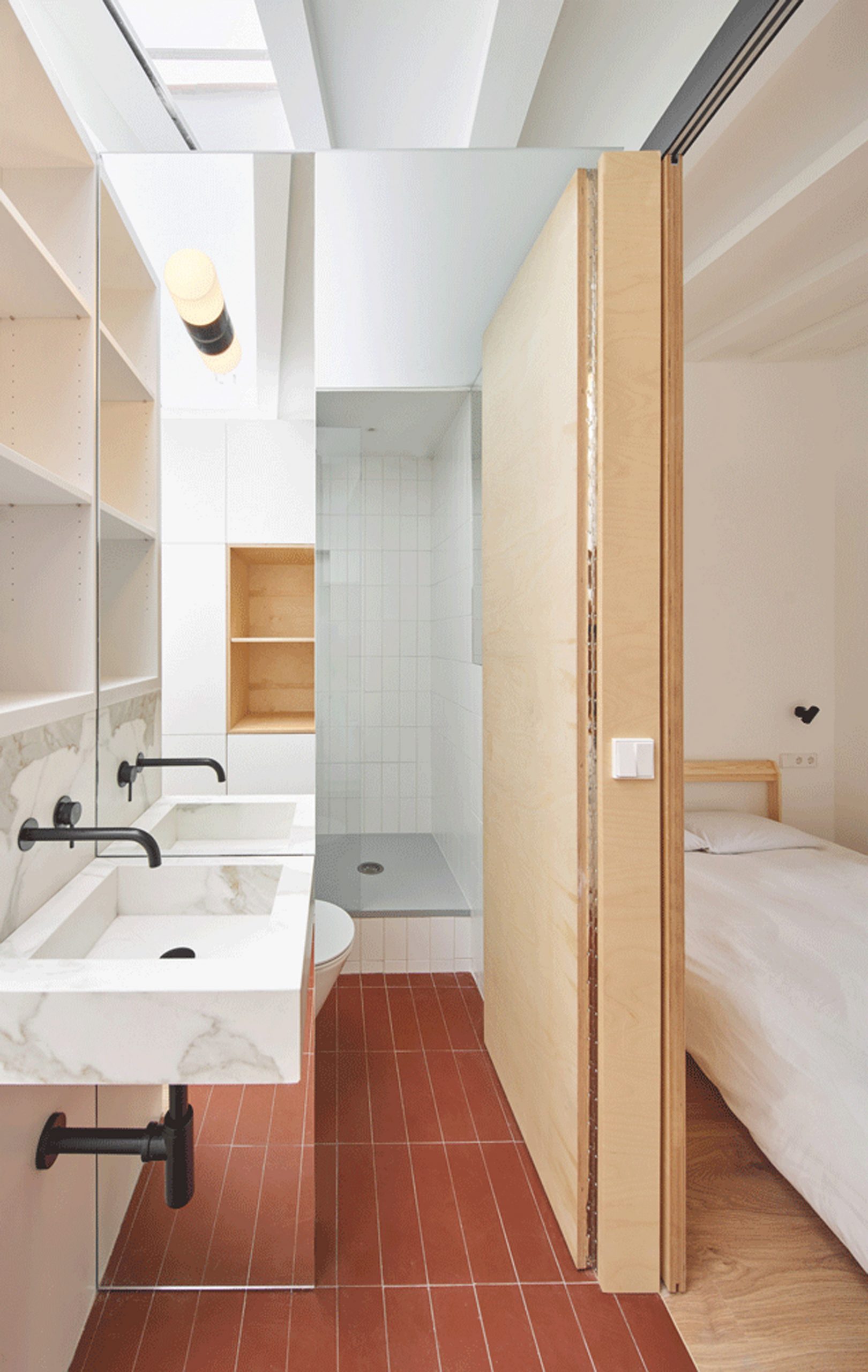
Akari House by Mas-aqui
Designed by Architecture studio Mas-aqui as part of a renovation of a 20th-century apartment in the mountains above Barcelona, this small bathroom combines red floor tiles with white wall tiles.
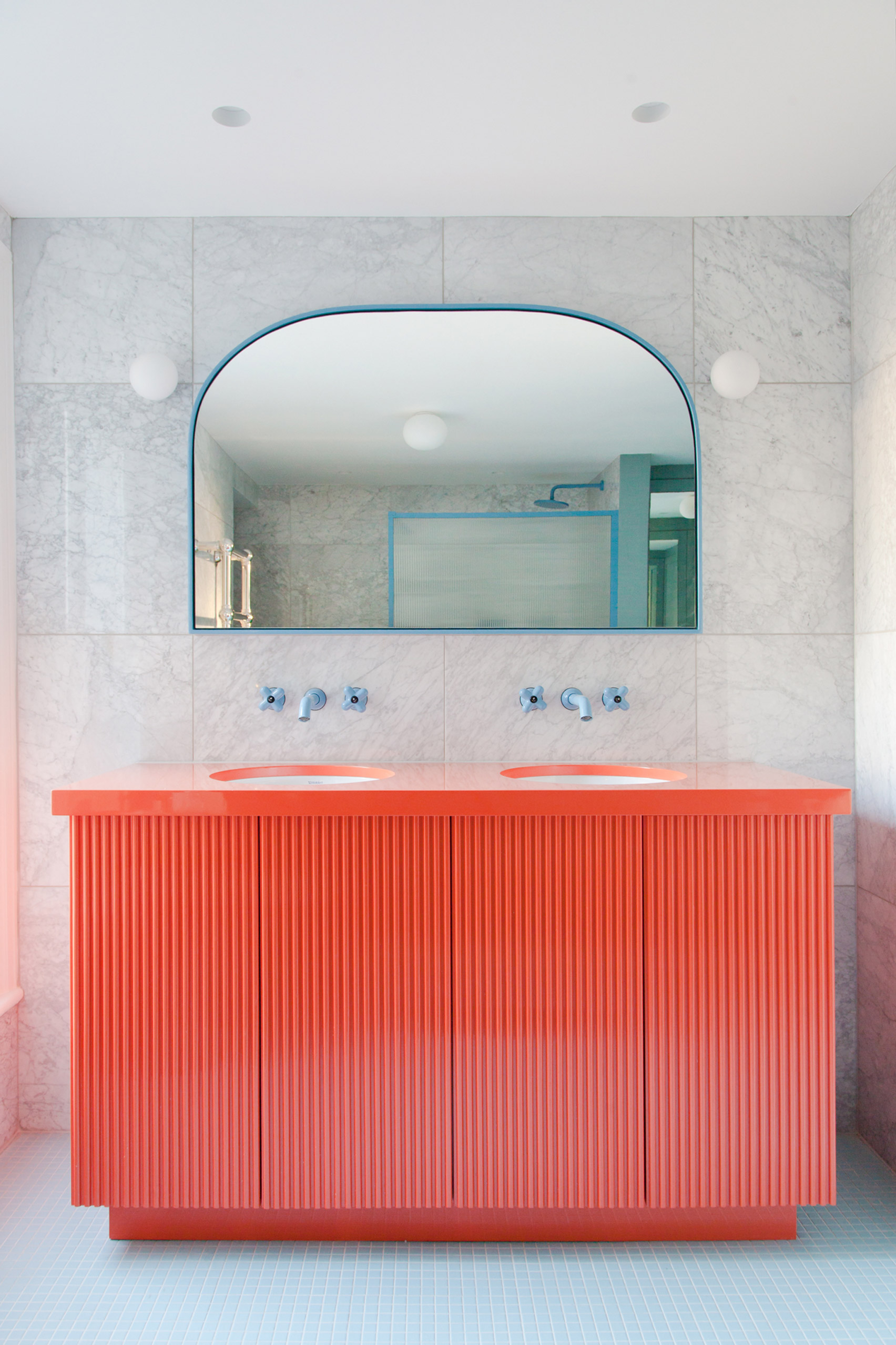
Louisville Road house by 2LG Studio
Created by 2LG Studio as part of a colourful overhaul of a period house in south London, this bathroom has pale marble walls and a baby-blue tiled floor. The baby-blue colour was also used for the taps and mirror surround, which contrast with the coral vanity unit.
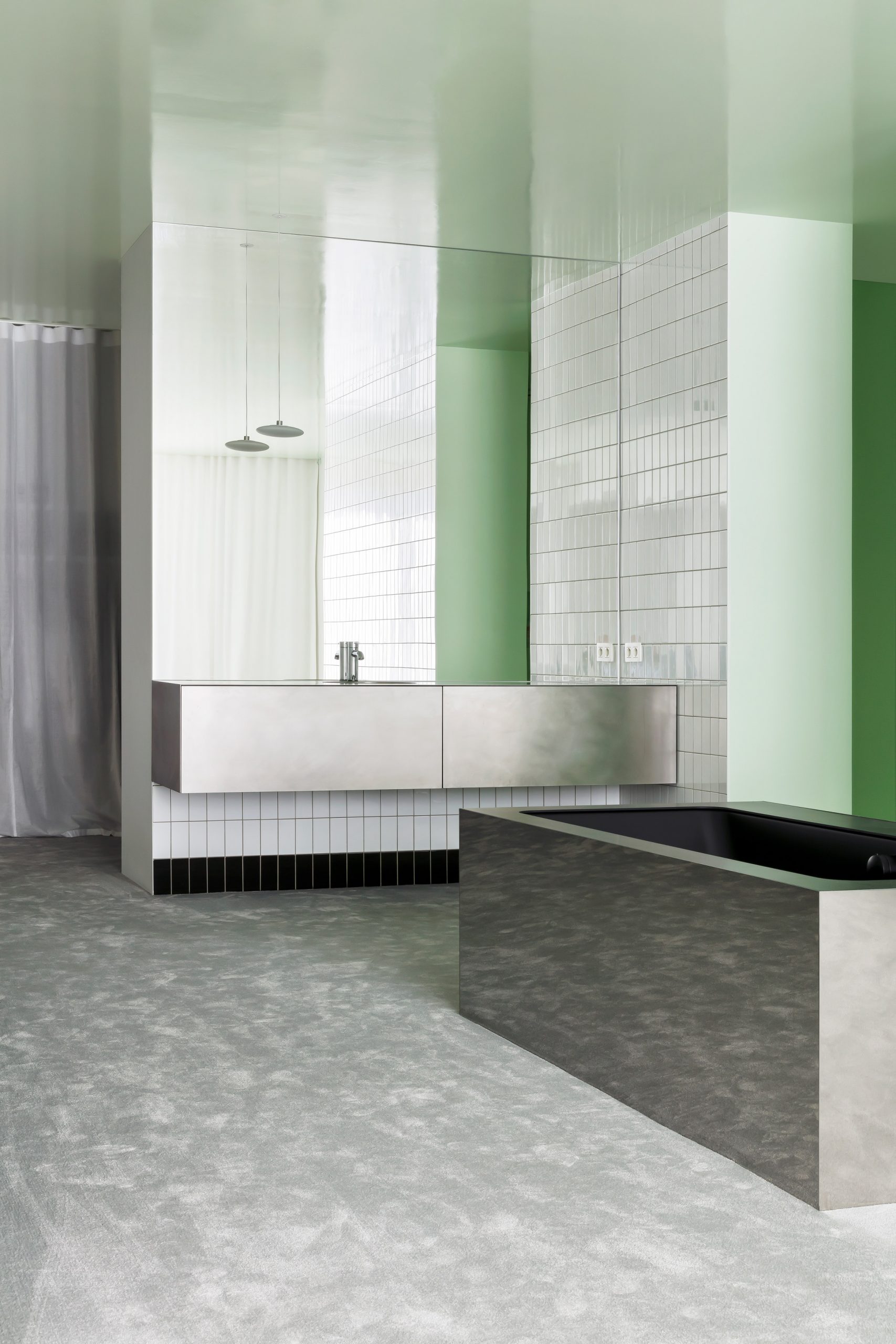
Apartment A by Atelier Dialect
This en-suite bathroom, which forms part of a large open-plan master bedroom in an Antwerp apartment designed by Belgian studio Atelier Dialect, has a rectangular freestanding tub at its centre.
The bath is wrapped in mirrored steel to compliment a stainless-steel basin, while the walls are finished with subway tiles and mint-green paint.
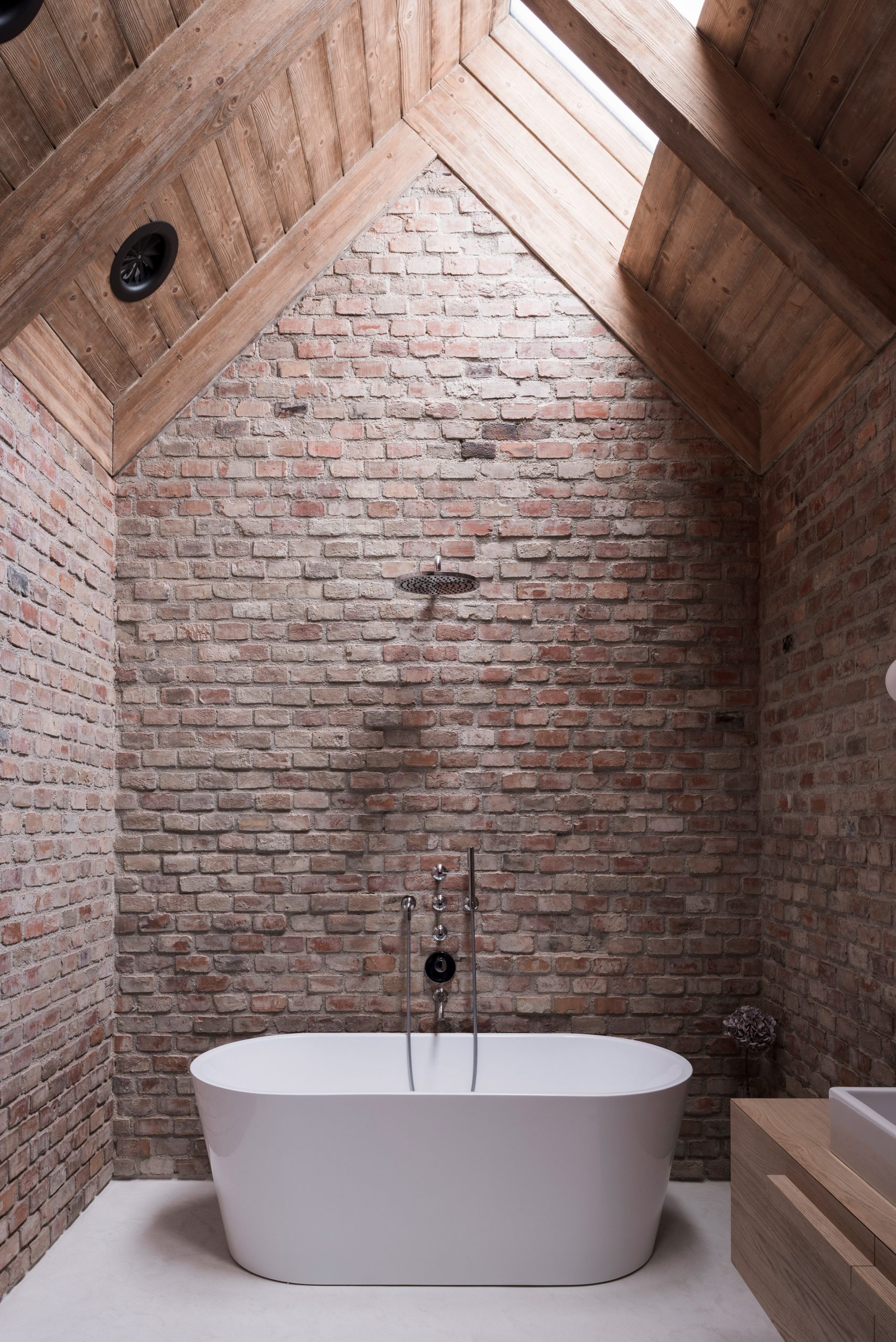
House V by Martin Skoček
Martin Skoček used salvaged bricks throughout the interiors of this gabled house near Bratislava, Slovakia. The master bedroom has a dramatic en-suite bedroom with a freestanding bathtub that is alined with the apex of the pitched timber roof.
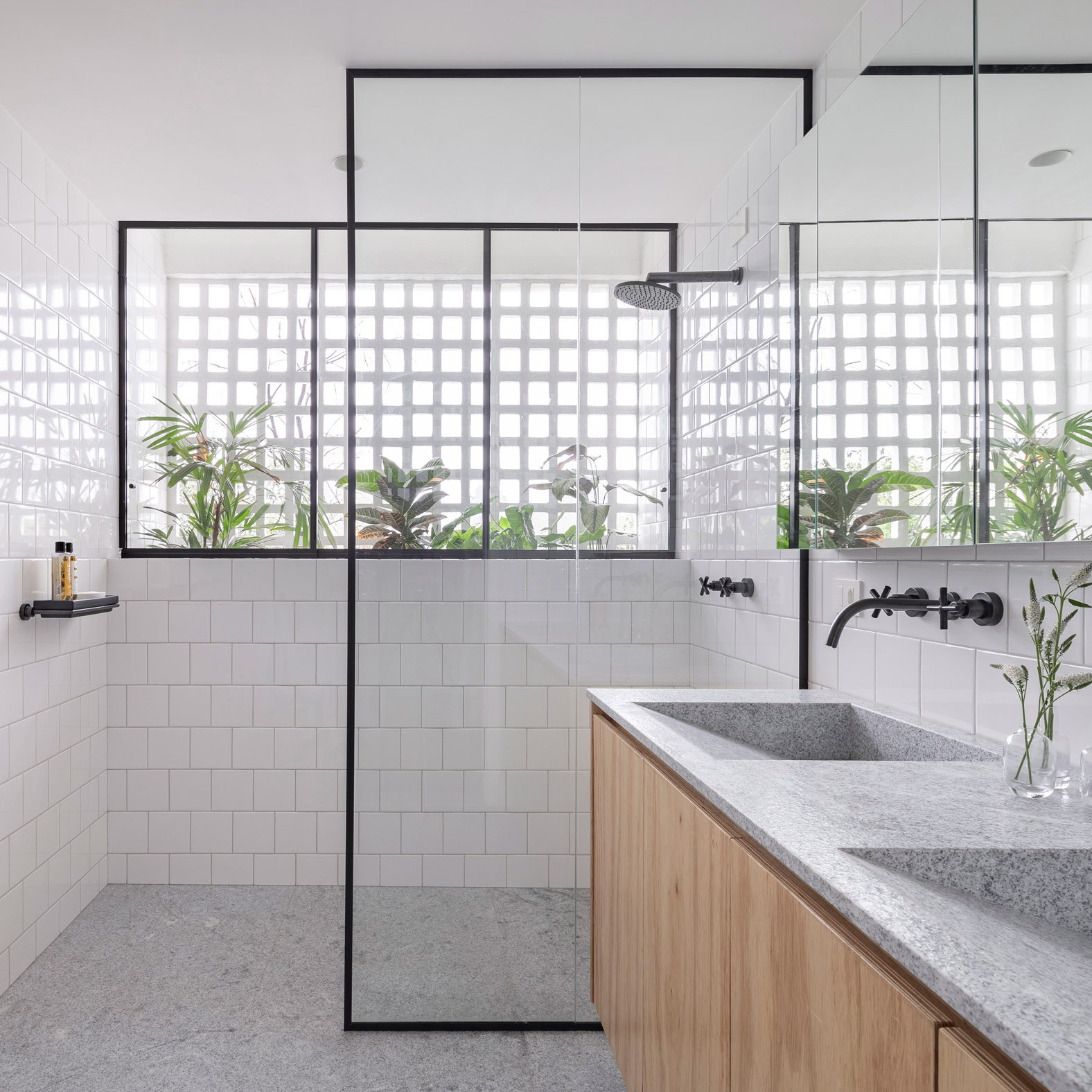
308 S apartment by Bloco Arquitetos
The bathroom in this 1960s apartment renovated by Bloco Arquitetos in Brasília incorporates white tiles as a reference to architecture in the city in the 6os. The white walls and ceiling are combined with a vanity counter and floor made from Branco São Paulo – a matte-finished granite.
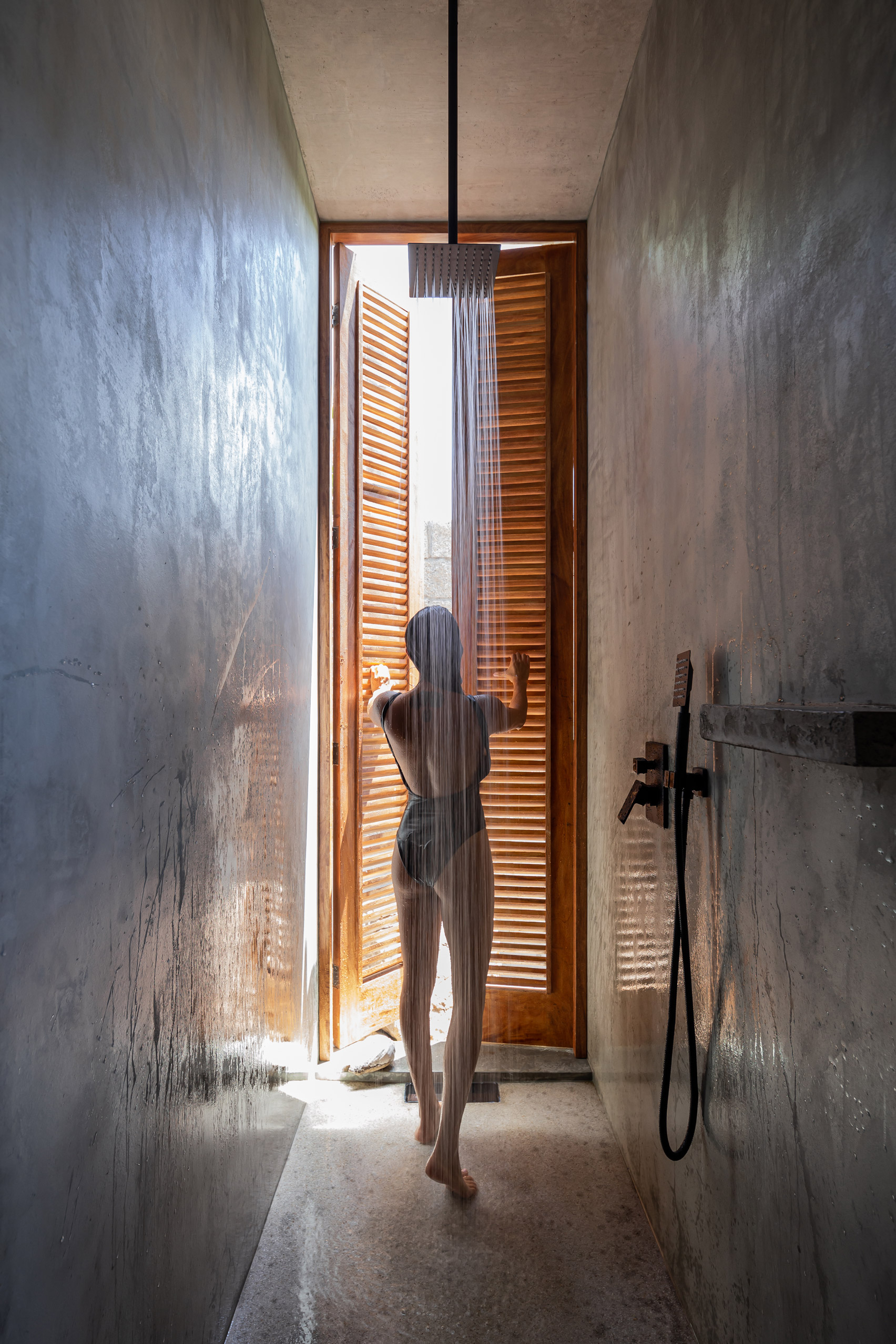
Mexican holiday home by Palma
This slim shower room is tucked behind a bedroom in a holiday home designed by architecture studio Palma. It has slatted wooden doors that open directly to the exterior.
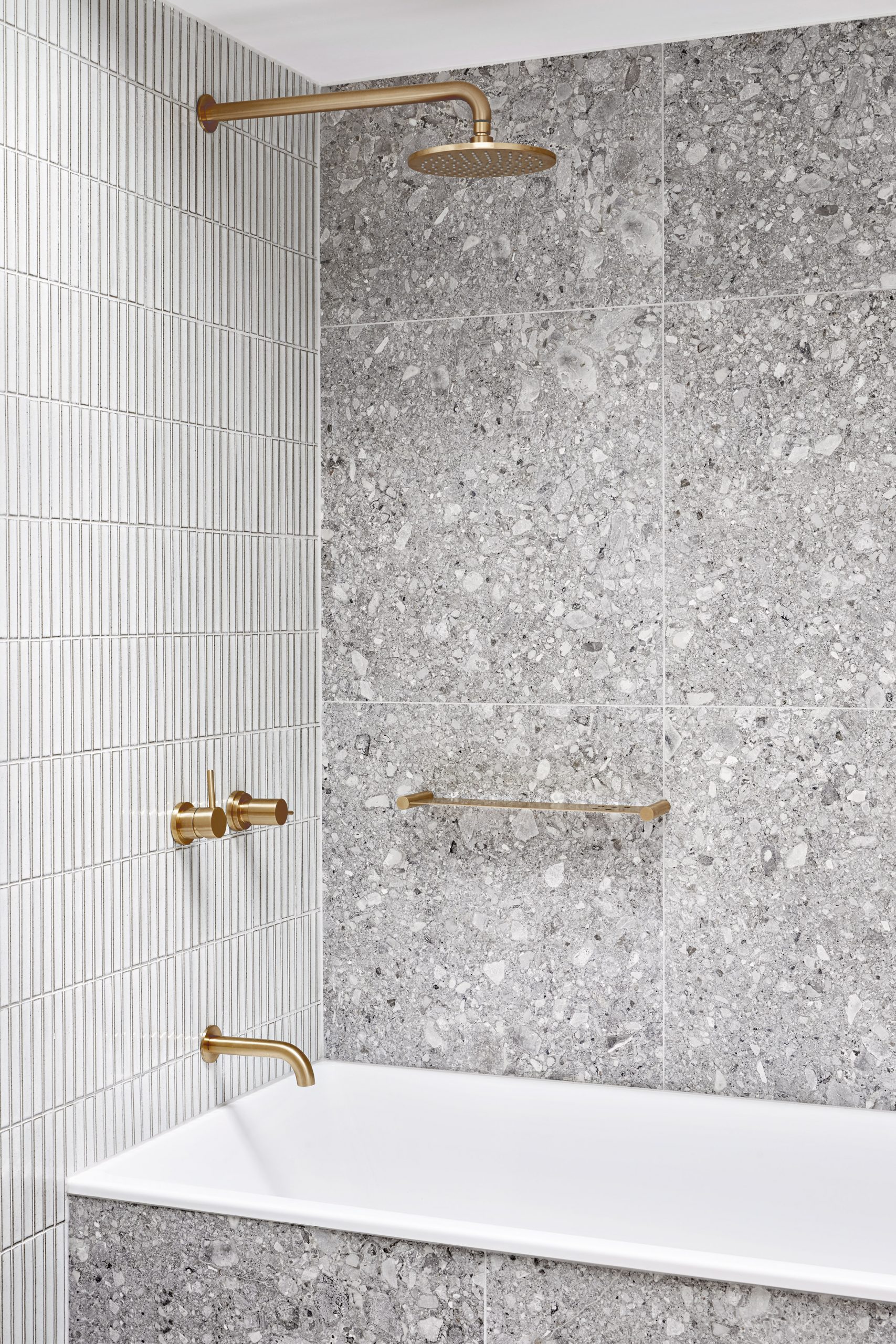
South Yarra Townhouse by Winter Architecture
This bathroom designed by Winter Architecture in a Melbourne townhouse combines exposed-aggregate grey tiles and thin, horizontal white tiles with towels rails and taps made from gold-hued brass.
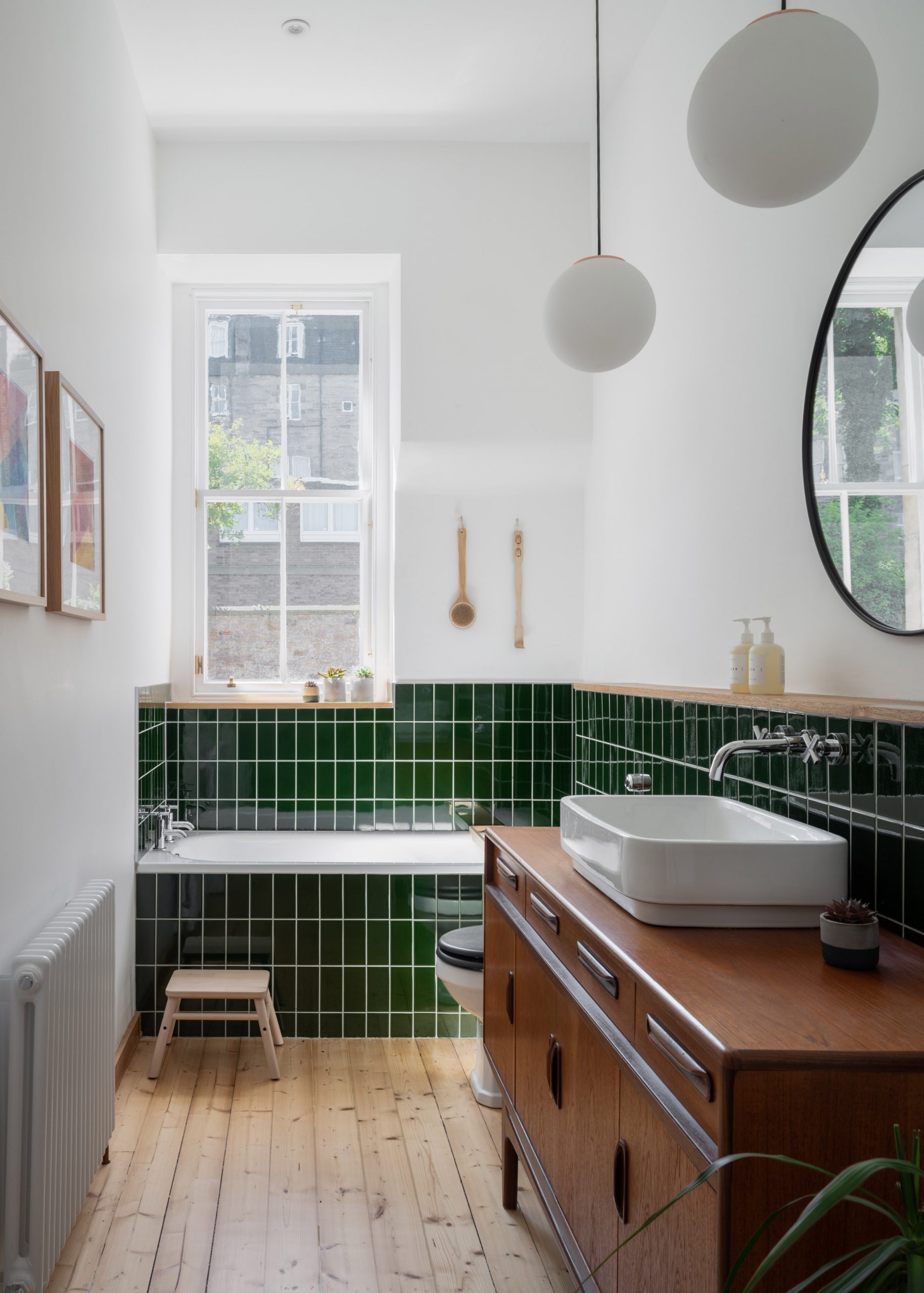
Edinburgh apartment by Luke and Joanne McClelland
The main bathroom in this Georgian apartment in Edinburgh has glazed green tiles on the lower half of the walls and the front of the tub. Alongside the bath, a sink was placed on a restored 1960s wooden sideboard by Danish designer Ib Kofod Larsen.
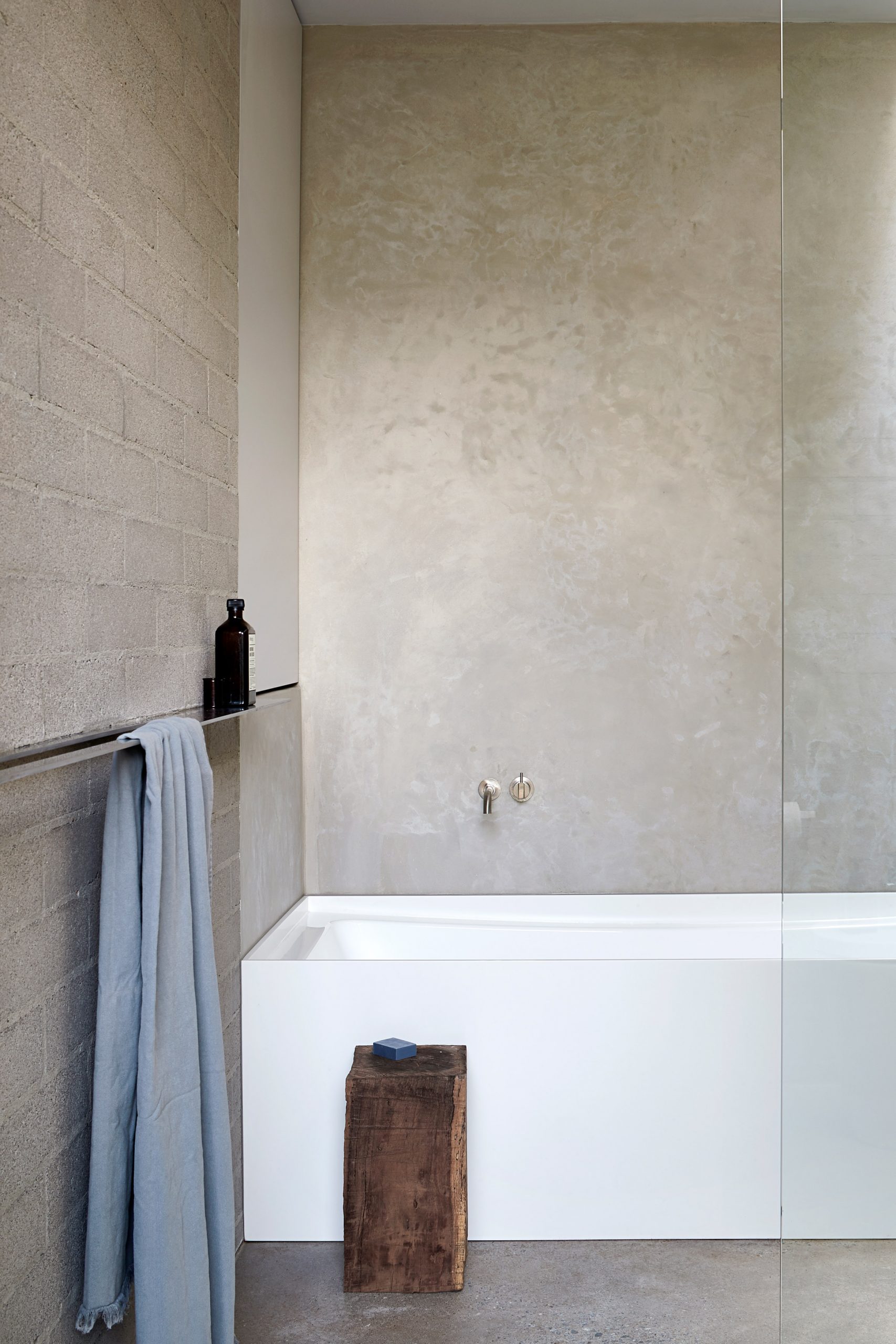
Ruxton Rise Residence by Studio Four
Built for Studio Four's co-director Sarah Henry, this tranquil house in the Melbourne suburb of Beaumaris has bathrooms with surfaces covered in tadelakt – a waterproof, lime-based plaster that is often used in Moroccan architecture to make sinks and baths.
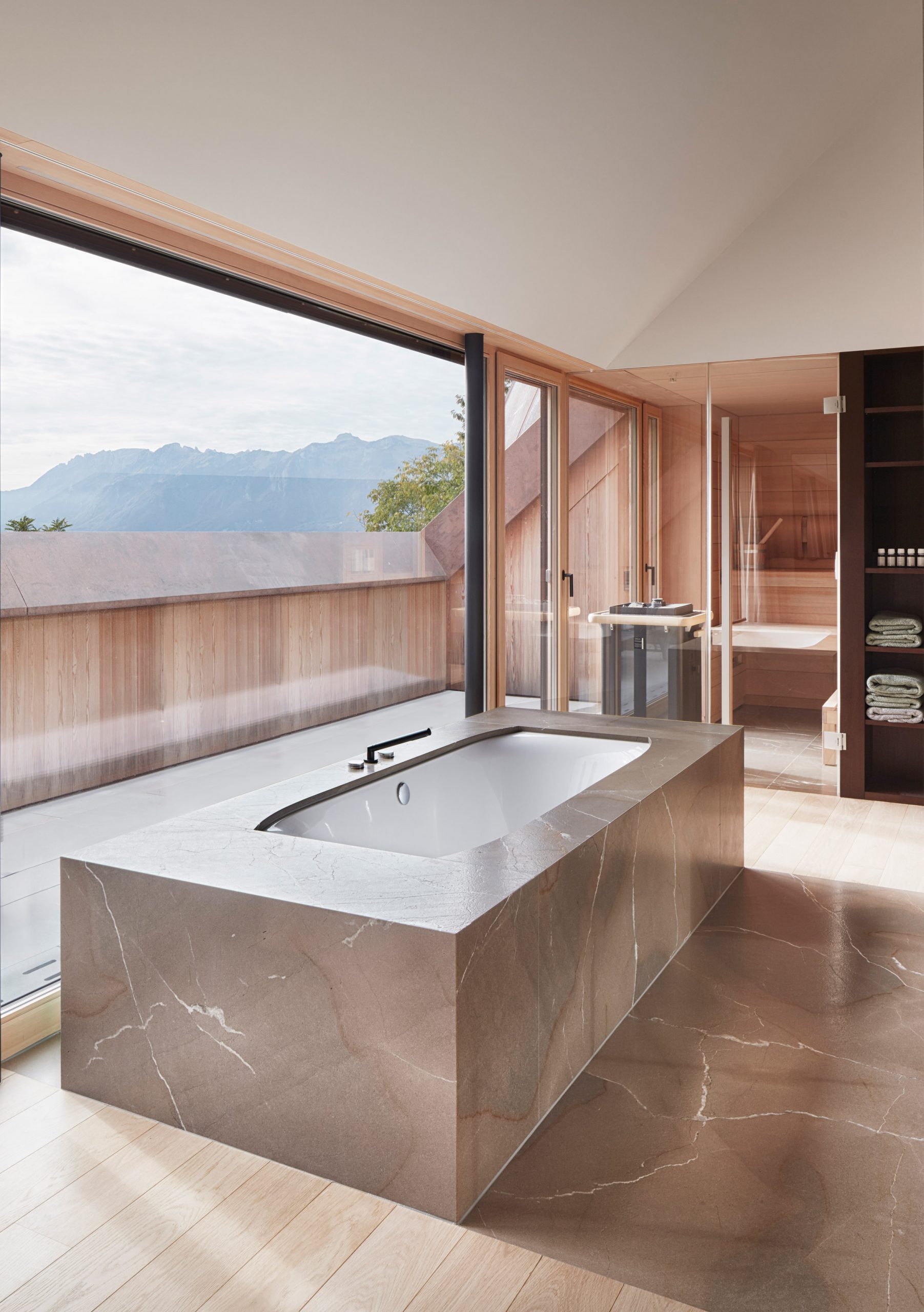
House with Three Eyes by Innauer-Matt Architekten
In House with Three Eyes, the bathroom has a full-height glass wall that has views out across the surrounding Austrian countryside. The marble-clad bath is positioned right next to this window so bathers can enjoy the views.
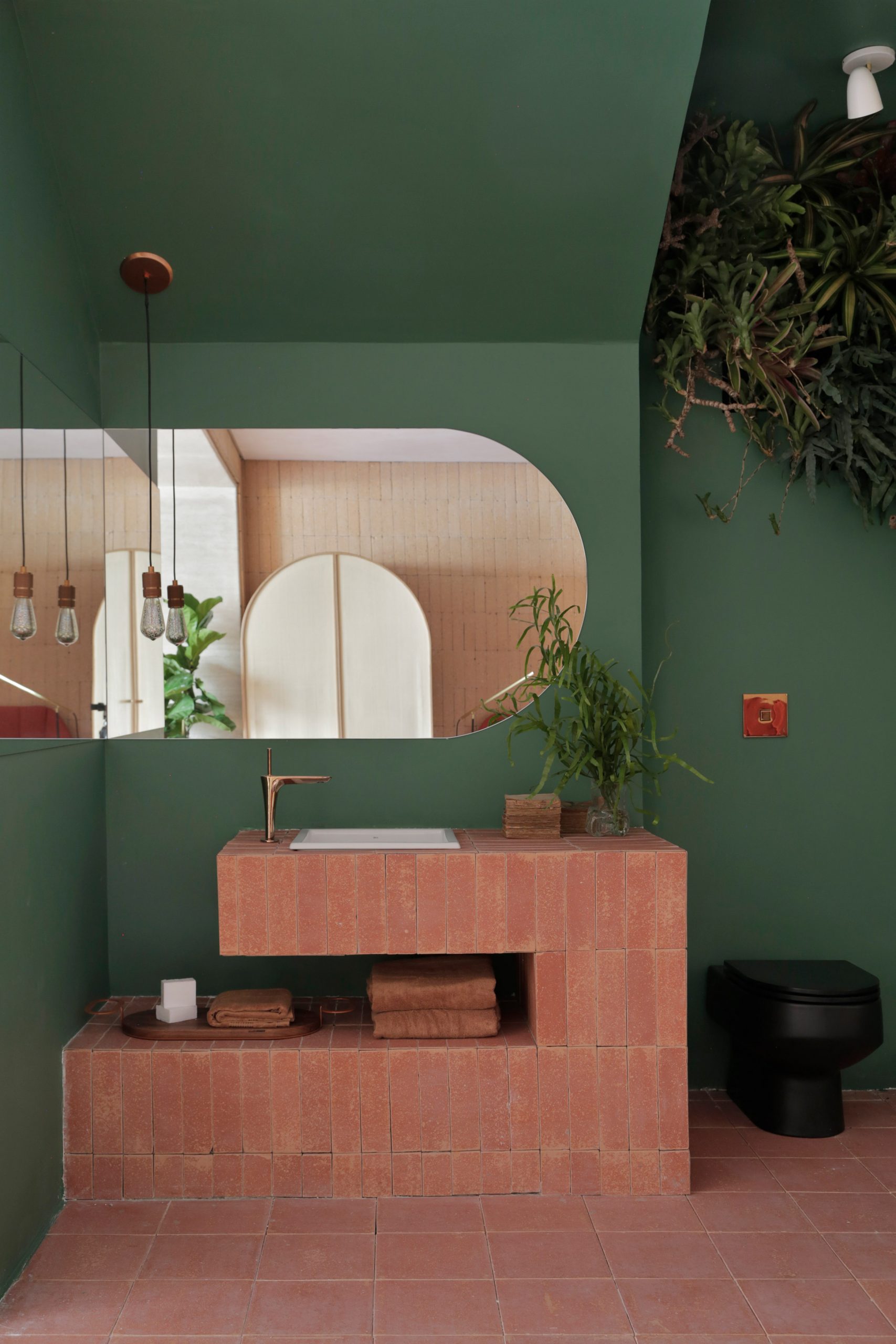
Hygge Studio by Melina Romano
Brazilian designer Melina Romano designed this fern green coloured bathroom to extend from a bedroom in a São Paulo apartment. It features a striking black toilet, a corner mirror and a vanity unit built from red brick that has an open slot for storing towels and toiletries.
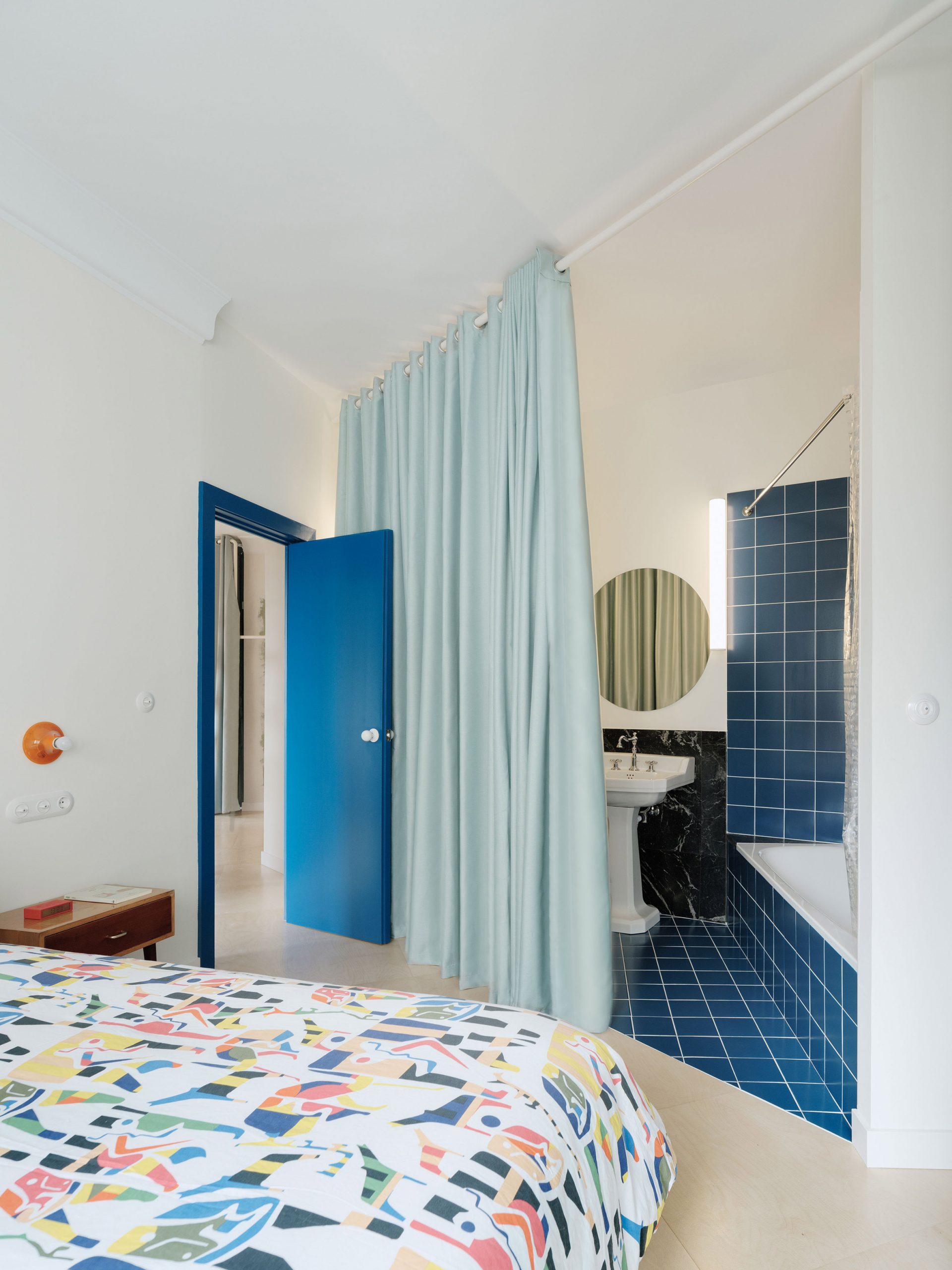
Ready-made Home by Azab
This en-suite bathroom in Azab's Ready-made Home is separated from the bedroom by an angled blue curtain. The triangular bathroom space is differentiated from the bedroom by its blue tiles on the floor, which extend up the front of the bath and walls.
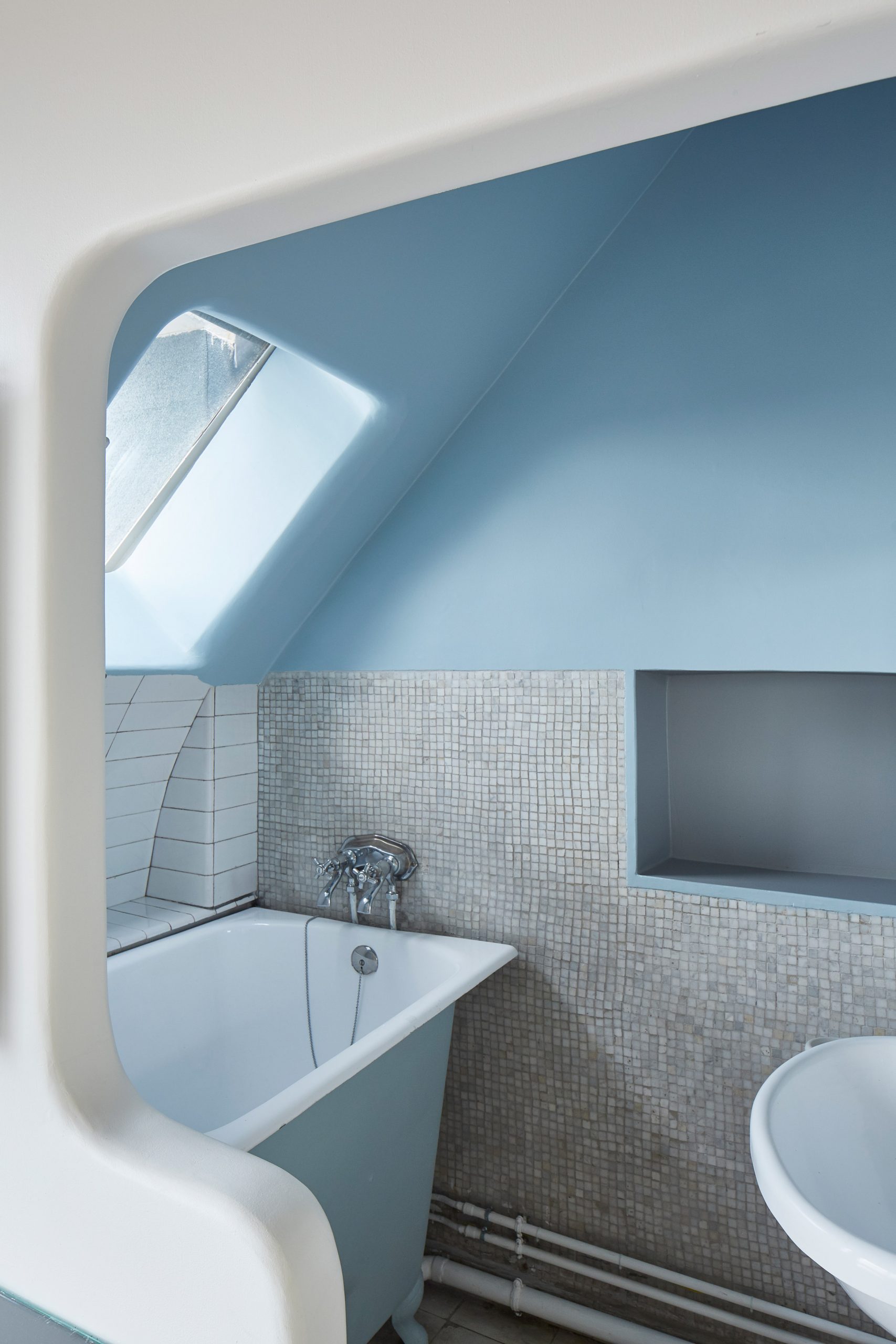
Immeuble Molitor apartment by Le Corbusier
This small bathroom was designed by Le Corbusier in the Immeuble Molitor apartment in Paris that was his home for over 30 years. The room, which has walls that are painted sky blue and covered with small white tiles, has a short bath and sink.
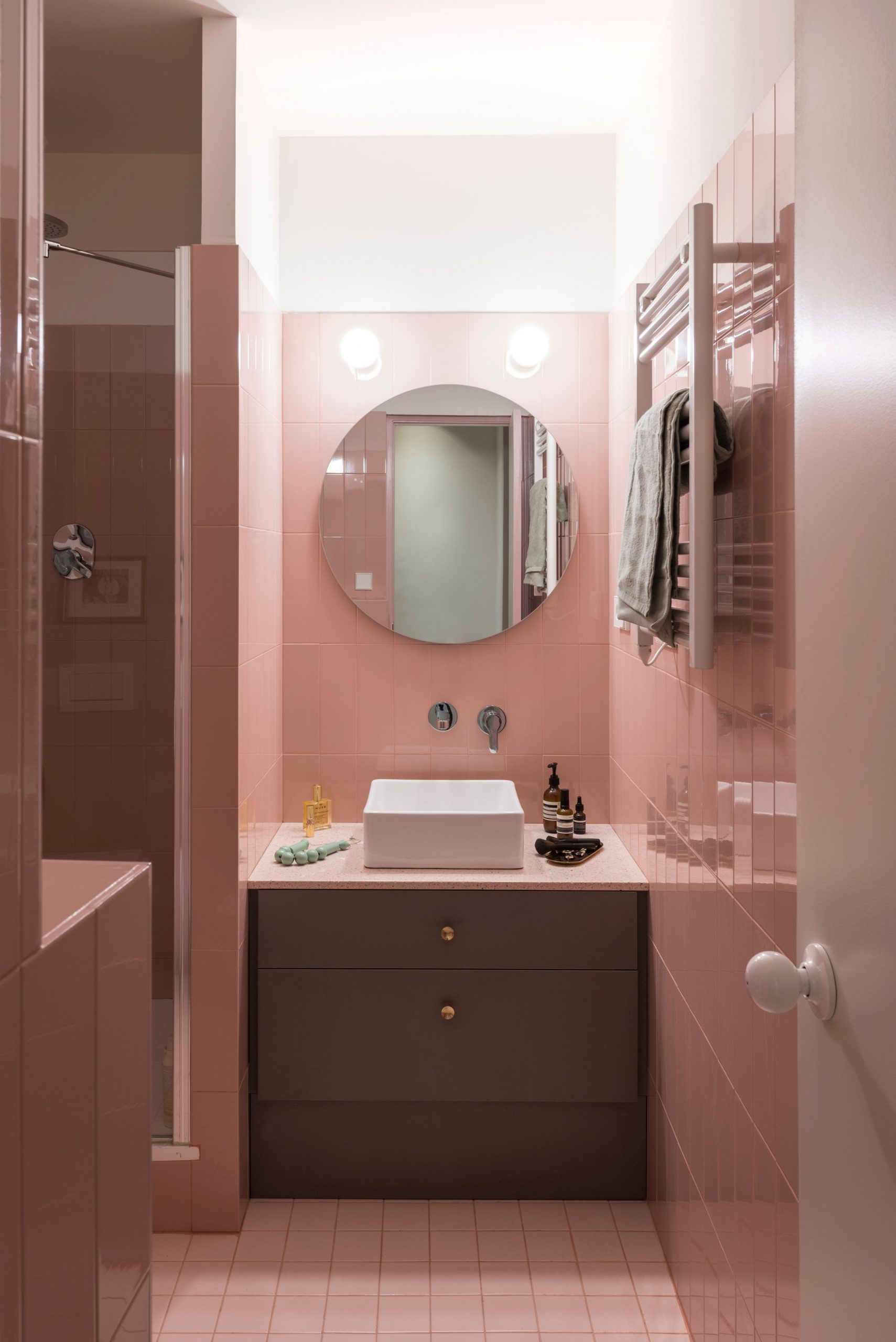
Apartment in Born by Colombo and Serboli Architecture
Colombo and Serboli Architecture added a new guest bathroom to this apartment in Barcelona's historic El Born neighbourhood, which has by blush-toned tiles and a circular mirror.
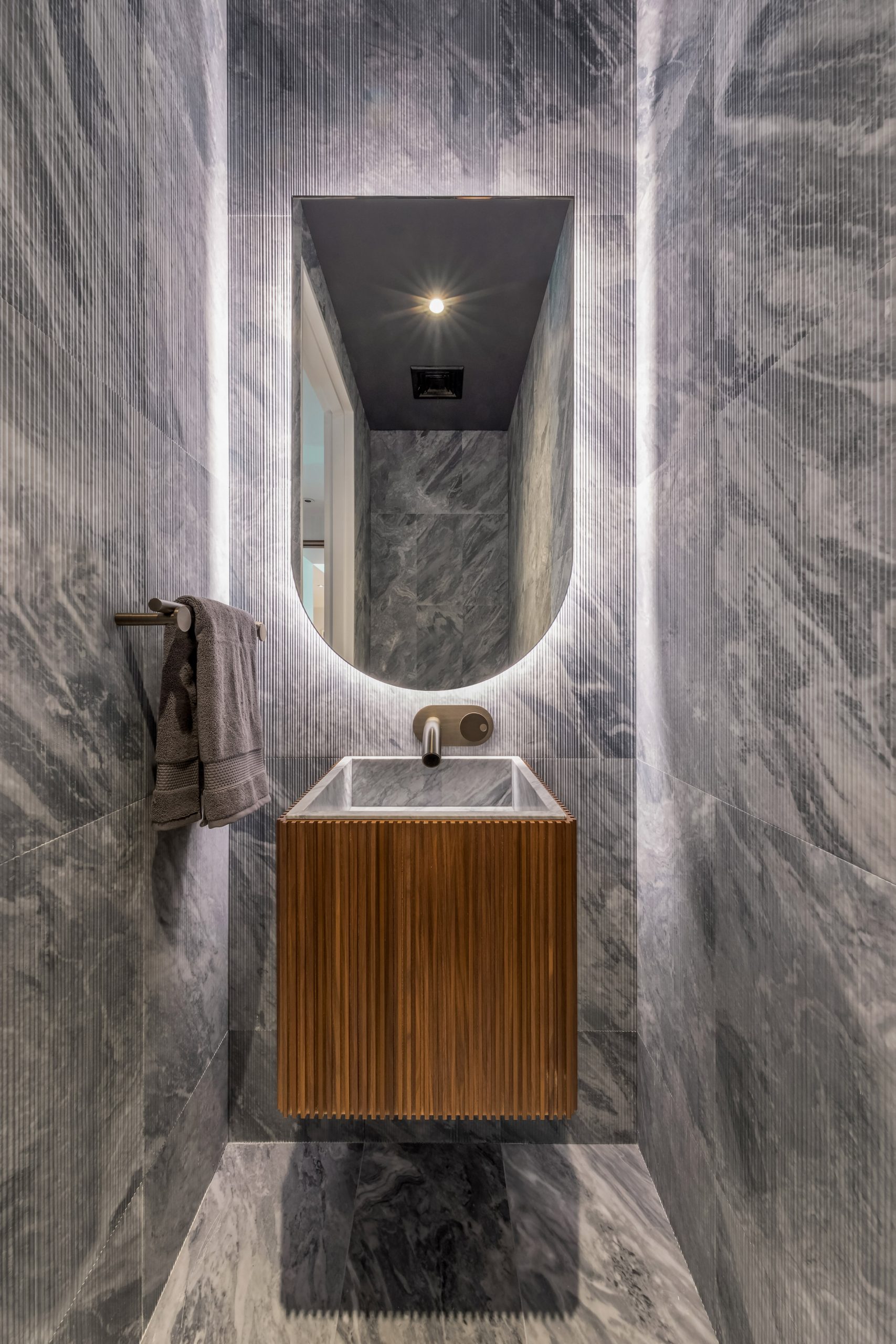
130 William skyscraper model apartment by David Adjaye
Built within an apartment in David Adjaye's 130 William skyscraper in New York, this bathroom is lined with serrated grey marble tiles and has a wooden sink unit with a matching profile.
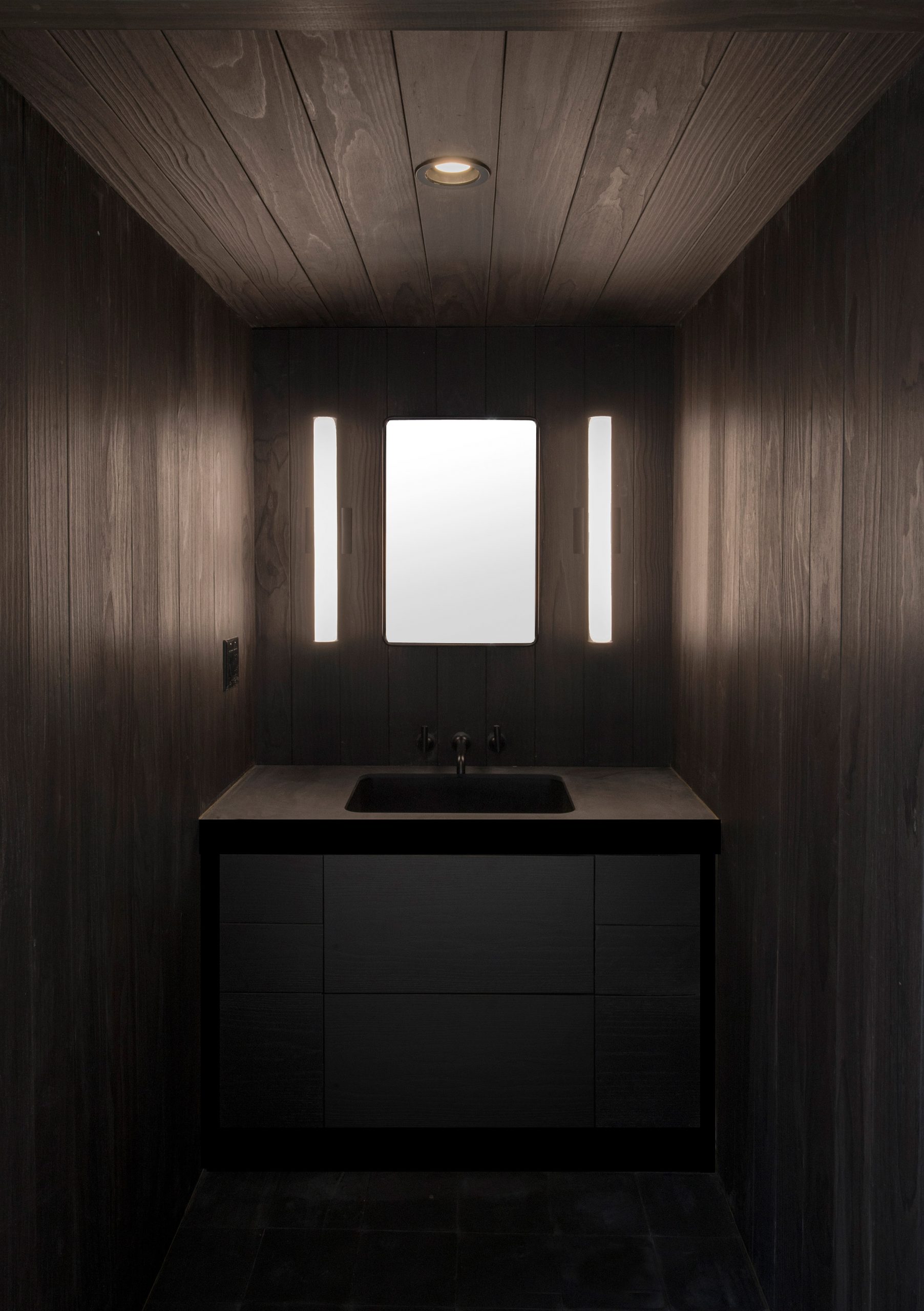
Pioneer Square Loft by Plum Design and Corey Kingston
The bathroom facilities in this loft apartment in Seattle are located in a custom-built L-shaped wooden box in one of the room's corners, which is topped with a bedroom.
A washroom, shower, toilet and sauna are each located in different boxes that are each clad in wood charred using the traditional Japanese technique known as Shou Sugi Ban.
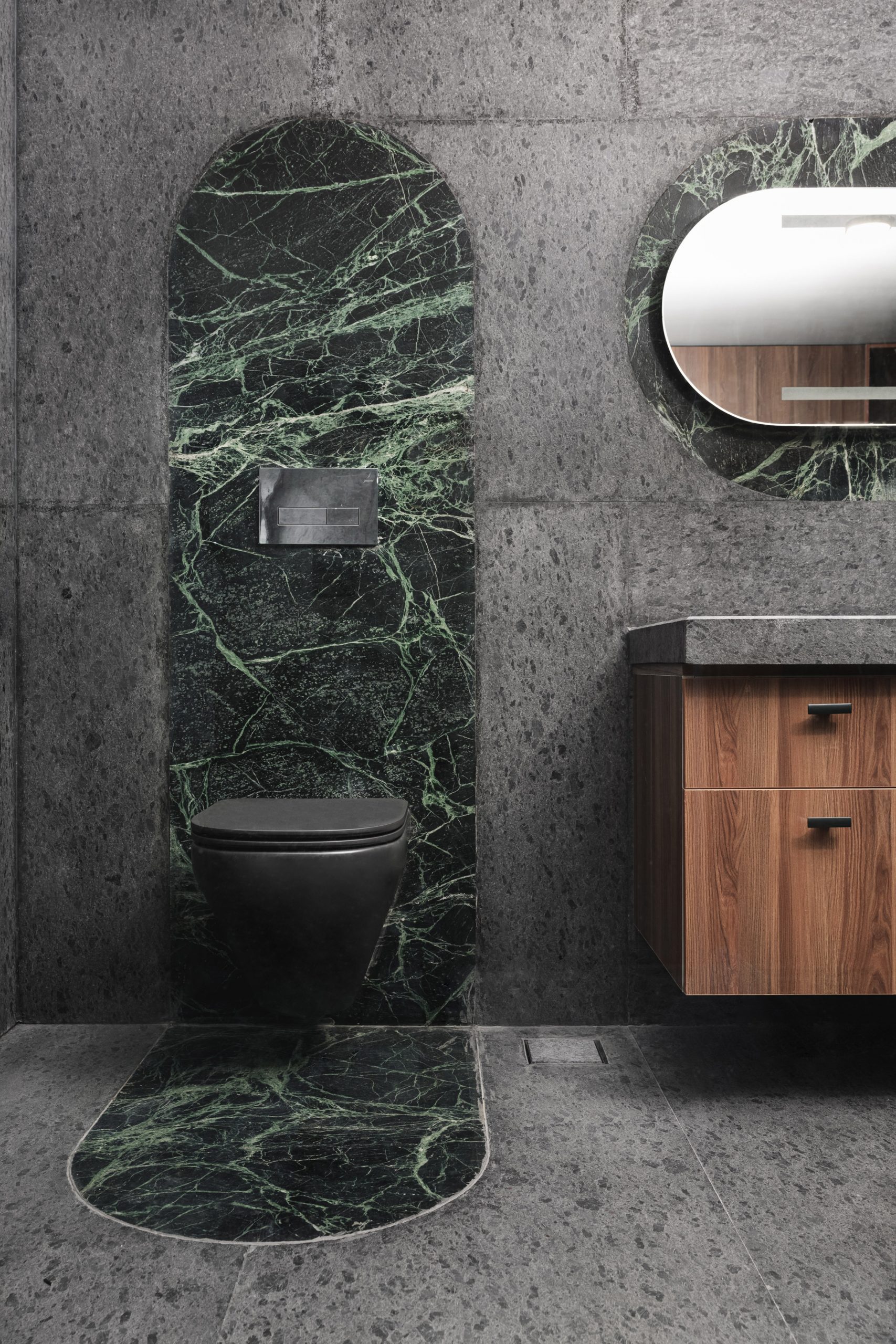
VS House by Sārānsh
The bathroom in VS House by Sārānsh in Ahmedabad, India, combines two clashing Indian stone finishes. Floors and walls are made from flecked grey tiles, while an emerald-coloured marble surrounds the toilets and mirror.
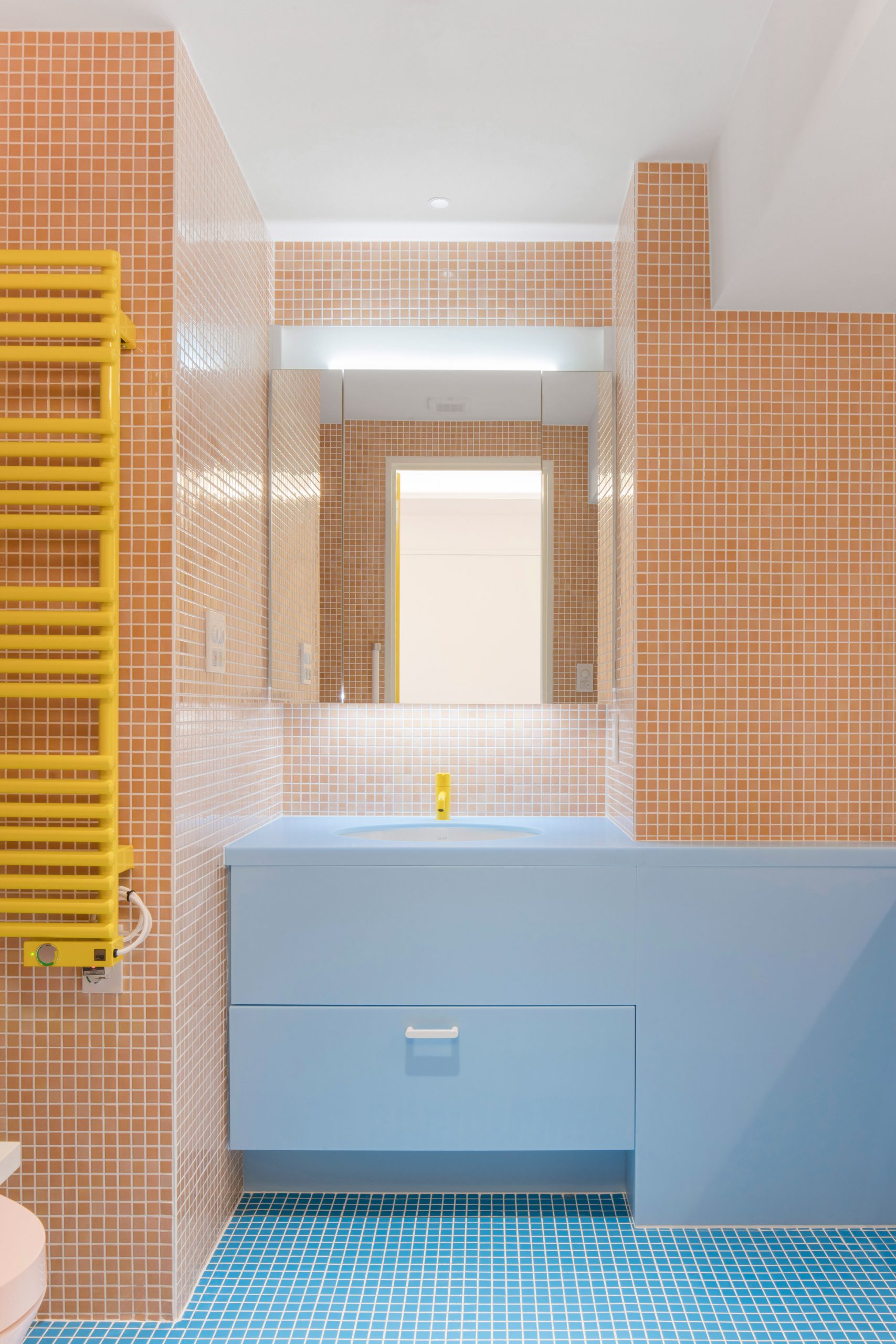
Nagatachō Apartment by Adam Nathaniel Furman
Forming part of the brightly coloured Nagatachō Apartment, which Adam Nathaniel Furman designed to be a "visual feast", this bathroom combines a blue-tiled with milky-orange-tiled walls. A sky blue vanity unit, lemon-yellow towel rail and taps, and pink toilet complete the colourful composition.
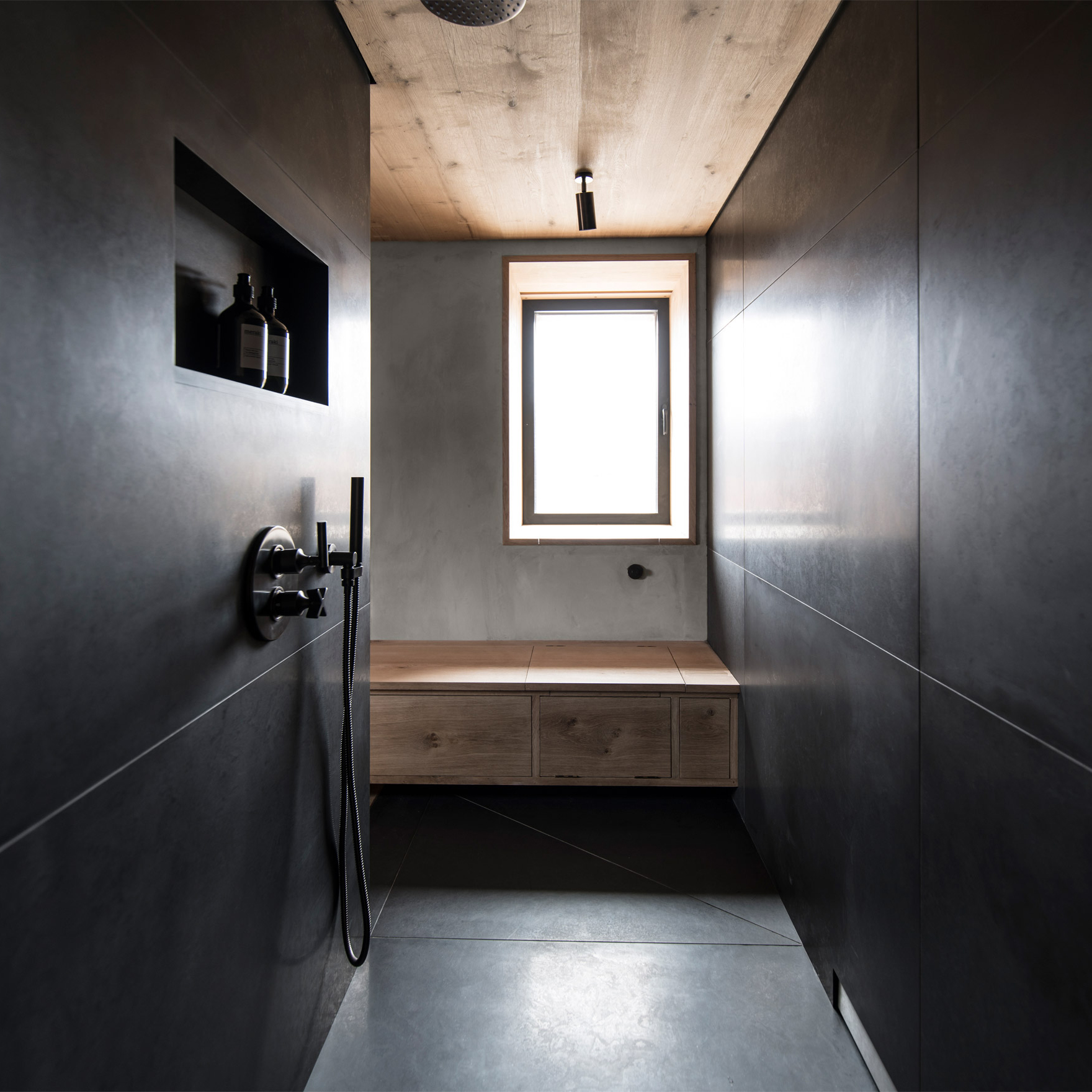
Kyle House by GRAS
This holiday home in Scotland was designed by Architecture studio GRAS to have a "monastically simple" interior. This is extended into the bathroom, which has grey walls and a shower space clad with large black tiles.
The post Thirty domestic bathrooms by architects including concrete, travertine and pink-tiled designs appeared first on Dezeen.
from Dezeen https://ift.tt/31Y1xO3
